Indonesia Electronic Customs Declaration (e-CD)

All passengers arriving in Indonesia from overseas must follow the country’s mandatory customs procedures . This includes the policies enforced by Indonesian customs, in addition to standard Indonesian visa regulations.
A completed Customs Declaration Form —also called the e-CD or BC 2.2—is required to pass through customs on arrival in Indonesia. This is an obligatory rule that all visitors must follow.
The following page explains:
- What the e-CD Customs Declaration Form is
- How to complete the e-CD online
- What you can and can not bring into Indonesia
- Clearing customs with the declaration form

What Is the e-CD Customs Declaration Form?
The Customs Declaration (BC 2.2) is a mandatory document which requires passengers to declare what goods they’re carrying into Indonesia.
The declaration allows customs officials to monitor what visitors are bringing into the country . Some goods do not require additional checks, while other items require legal permission as they could be subject to import duties or a specific license or permit.
Arrivals must state on their e-CD form if their passenger luggage (Barang Penumpang in Indonesian) contains goods that are restricted under Indonesia law. This then determines which channel (red or green) they can pass through at customs.
Do I Need a Customs Declaration Form for Indonesia?
Yes, all passengers arriving in Indonesia must complete the e-CD Customs Declaration Form.
The procedure is a mandatory requirement to enter the country. This includes those who do not have any restricted goods.
A declaration form must be completed each time you enter Indonesia . If you’re traveling as a family, only 1 form is required.
Do I need an e-CD form to visit Bali?
The Indonesia Customs Declaration Form is required to visit all parts of the country , including Bali.
The same rules apply to anywhere else you intend to visit in Indonesia, such as Jakarta and Java.
If you’re visiting Bali, you’ll also need to pay the Bali Tourist Tax . It’s compulsory for all tourists entering the Bali region.
It’s easy to pay the Bali Tourist Tax online in advance of your trip.
How to Complete the e-CD Customs Declaration Form
Previously, the Customs Declaration Form for Indonesia was a physical paper document that was handed to passengers on the plane. Indonesia has now streamlined the process with an online e-CD service .
The electronic e-CD declaration speeds up the process for passengers by allowing them to complete the form before they travel. It also digitalizes the procedure, removing the need for a physical document.
Conveniently, you can complete your Customs Declaration Form when you apply for an Indonesian visa through this website. Simply select the option to add an e-CD form when you start the application.
How long does it take to get an e-CD form?
If you apply for your e-CD declaration through this site with your Indonesia visa application, the general turnaround time is 2 business days .
If you need your form quickly, there’s a 1-hour priority service available. Simply select this option when you start the application.
Embassy registration with the e-CD declaration
If you’re a citizen of Canada, the UK, or the US, you have the option to register with your embassy when you complete your e-CD form through our site.
By selecting embassy registration on your form, you can receive travel updates and advice for your trip to Indonesia. In addition, you can be easily contacted and/located if there’s an emergency.
What Do I Need to Declare on the e-CD Customs Declaration Form?
Travelers must declare the following items at Indonesia customs:
- Items from the list of prohibited or restricted goods
- Goods subject to import duty
- Currency above the permitted amount of IDR 100,000,000
Concealment of prohibited goods or false declarations will be prosecuted per Indonesian law . Goods that do not get Indonesia’s customs clearance may be confiscated.
Indonesia’s restricted goods may change at short notice. Travelers must check the latest customs declaration information before departure.
Read on to find out what is considered prohibited or restricted by Indonesian customs.
What Cannot Be Brought into Indonesia?
Some items are completely prohibited in Indonesia, while others are prohibited without a special license.
Prohibited goods in Indonesia
You cannot bring any of the following items into Indonesia:
- Psychotropic substances
- Sharp weapons
- Pornographic objects/publications
Prohibited goods in Indonesia without a license
The following items are prohibited without a special license and cannot be carried into Indonesia:
- Fish and/or plants, including products derived from animals, fish and/or plants
Indonesia Imports Duty-Free Limits
Each passenger over the age of 18 years old may import the maximum amounts shown:
- Tobacco : 200 cigarettes/ 25 cigars or 100 grams of tobacco
- Alcohol : 1 liter of liquor
- Perfume : a reasonable amount
- Personal goods : up to a value of 500 USD
Goods such as camera and video equipment, laptops, and cell phones do not count in the personal goods allowance provided they are taken back with them when leaving Indonesia.
Passengers carrying more than the stated quantity of each product must pay import duty, VAT, and income tax for the difference.
Limits on Taking Currency into Indonesia
Foreign currency above the equivalent of IDR 100,000,000 ( around $6400 USD ) must be declared. Currency equal to or above the value of IDR 1,000,000,000 is prohibited.
An approval letter from either the Central Bank or External Affairs is required to carry local currency (Indonesian Rupiah, IDR) in amounts exceeding IDR 100,000,000 into the country.
Taking Prescription Medicine into Indonesia
Individuals who need to travel to Indonesia with medicine should carry a copy of the prescription , which should cover the full quantity of medication. It must be clear that the medicine is for personal use only.
Foreign nationals should be aware that certain prescription drugs available in their home country may be illegal in Indonesia . It’s important to check with a doctor and the Indonesian embassy before departure.
Traveling to Indonesia with Pets
Dogs and cats may be taken into Indonesia provided they have a permit issued by the Directorate General of Livestock Service. They must also have good health and rabies certificates, depending on the country or origin. Vaccinations must be administered between 30 days and 1 year before travel.
Birds also require a permit and health certificate. All pets undergo quarantine on arrival , the Animal Quarantine Office should be notified 2 days before departure.
The import of animals that could carry a risk of rabies through Denpasar in Bali is not permitted , except in transit.
Clearing Indonesia Customs with the e-CD Form
After presenting the passport and Indonesia visa at immigration, travelers must then pass through customs clearance .
All goods carried into Indonesia are subject to an Indonesian Customs and Excise officer inspection . This applies to travelers arriving at an international airport or any Indonesian land or sea borders.
Passengers must present their completed Indonesia Customs Declaration Form, or the QR code for the online form, to the customs officer at the inspection gate.
Hand luggage that goes through the red channel is inspected through a baggage scanner and the customs inspection gate. Random checks are also carried out by officers.
Luggage Clearance for Passengers in Transit in Indonesia
Passengers transiting through Jakarta Soekarno-Hatta (CGK) airport or Medan Kuala Namu (KNO) to another Indonesian airport must label luggage to these airports for clearance on arrival . Transit passengers need to collect their luggage and check-in again.
The luggage of passengers transiting through Indonesia en route to a different country is exempt.
Reviewed by

Founder of Tampubolon Legal Solutions
Tiffany is a high-skilled immigration attorney with eight years of legal experience. As the founder of Tampubolon Legal Solutions, she consistently delivers exceptional legal services, utilizing her expertise to assist her clients to navigate the complexity of Indonesian immigration procedure.
Related Posts

Travelling to Indonesia with a Criminal Record

Indonesia Visa Extension

Indonesia Visit Visa on Arrival (B213) at the Indonesian Border

E-CUSTOM DECLARATION INDONESIA
All international flights to Indonesia are required to obtain the E-Custom Declaration Form before departure or upon arrival. The Electronic Custom Declaration ( E-CD ) applies to all foreign and local individuals traveling to Indonesia. These Electornic Declaration Forms are presented to entry ports of the country’s major airports such as Jakarta , Bali , Surabaya , Medan and Komodo .
WHAT IS E-CUSTOM DECLARATION INDONESIA
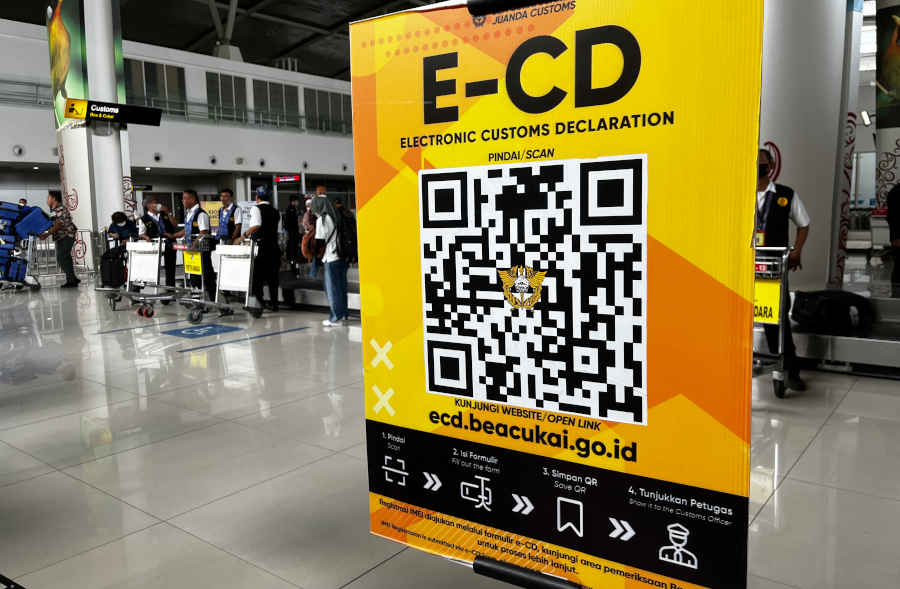
Indonesia Electronic Custom Declaration contains detailed information about the individuals traveling to Indonesia such as personal information, check-in baggage, and import of goods.
3 WAYS TO OBTAIN INDONESIA E-CUSTOM DECLARATION
#1 visit the website and fill-out form.

Open browser and enter the URL link https://ecd.beacukai.go.i d / to access the Indonesia Electronic Custom Declaration website
#2 SCAN QR CODE UPON ARRIVAL IN INDONESIA

After clearing Indonesia Custom/Immigration or retrieving the check-in baggage, visitors can scan the QR code available right next the baggage collection area.
#3 USE THE COMPUTER KIOSK TO FIL-OUT E-CD
Visitors can also fill-out the Electronics Custom Declaration from the provided computer kiosk.
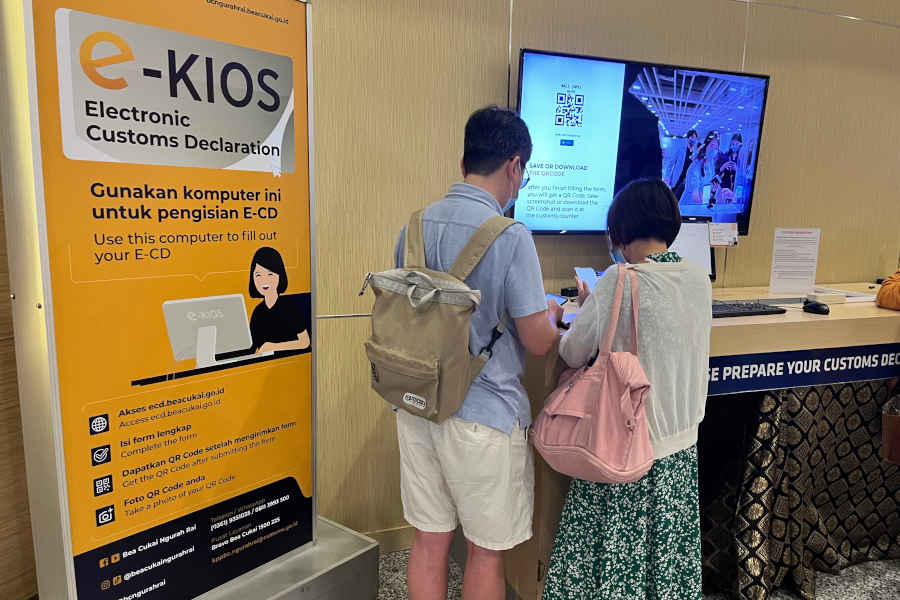
After checking the way to access electronic form, visitors can continue by entering the necessary information.
A) ENTER REQUIRED PASSENGER INFORMATION

Passenger Information Full Name Email Address Passport Number Nationality Date Of Birth
Occupation (*Select Which Applies) -Civil Servant -Private Employee -Entrepreneur -Student -Pilot -Steward/Stewardess -Diplomat -Others
Address in Indonesia (Hotel Name /Residential Address) Place of Arrival (Airport) -Jakarta (Soekarno Hatta) -Bali (Ngurah Rai) -Surabaya (Juanda) -Medan (Kuakanamu) – Labuan (Komodo)
Flight Or Voyage Number Date of Arrival
B) ENTER ADDITIONAL PASSENGER DATA INFORMATION
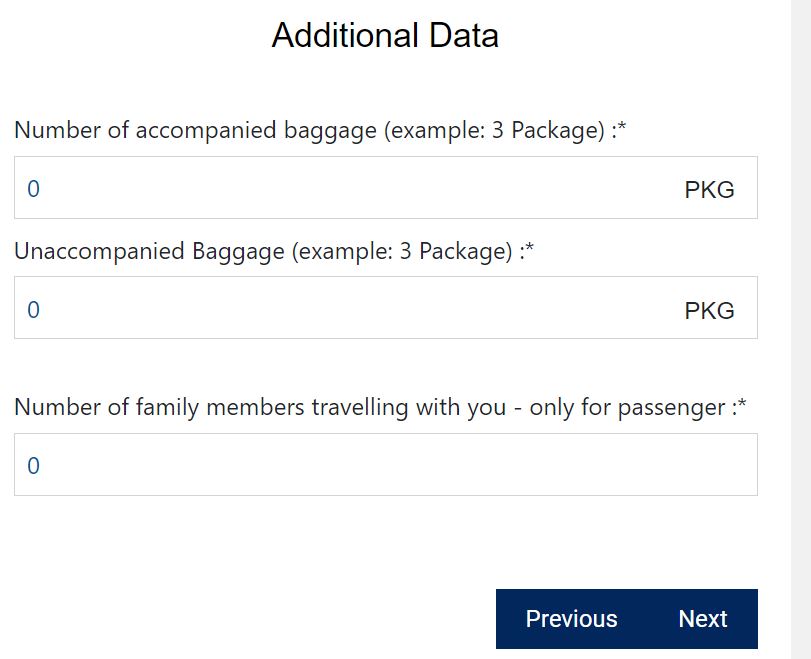
C) FILL IN THE INFORMATION OF GOODS

D) Enter the IMEI REGISTRATION
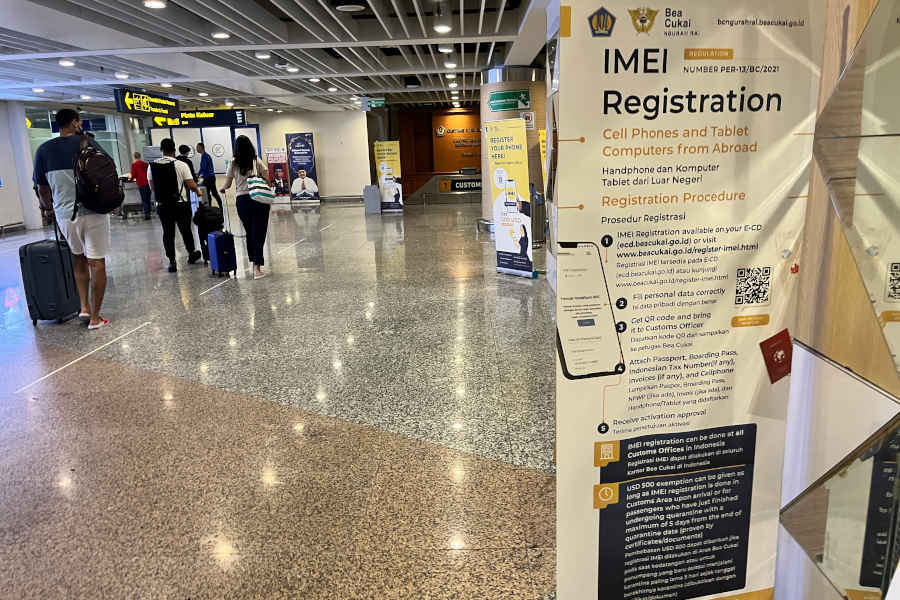
As stated IMEI registration only applies for travelers in Indonesia who wish to stay for more than 90 days.
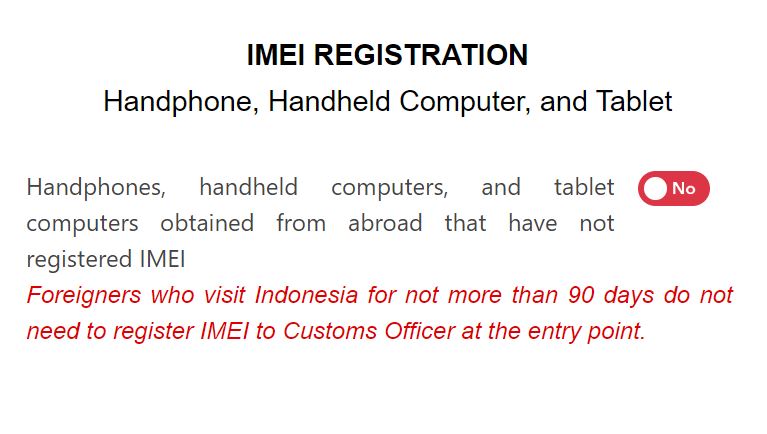
E) CLICK AGREE ON THE TERMS
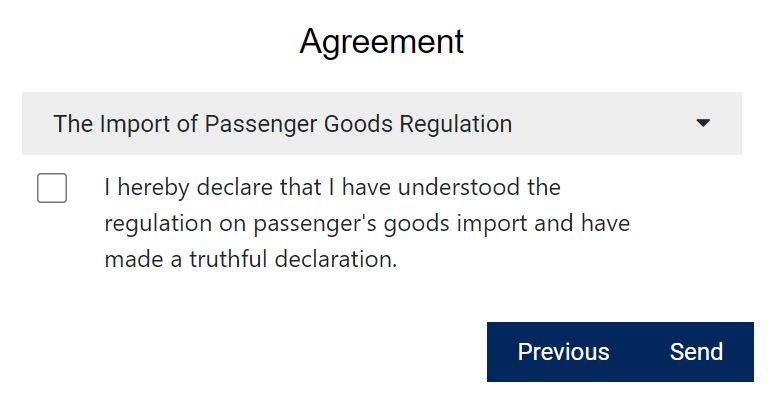
F) RETRIEVE THE QR CODE CUSTOM DECLARATION
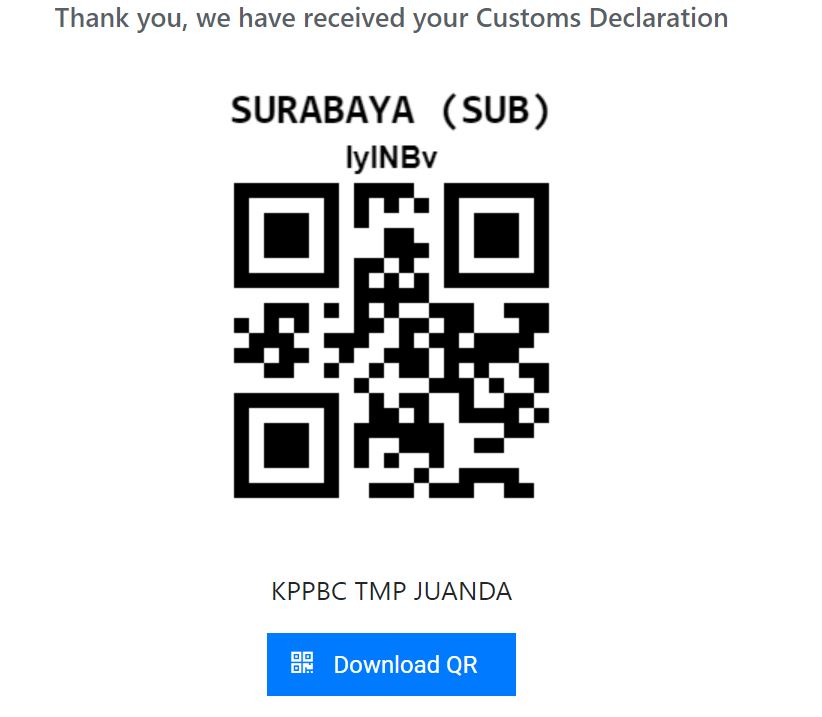
UPON ARRIVAL IN INDONESIA
All travelers must take a screenshot of the generated QR code which will be used to present upon arrival in Indonesia to the Customs officers at their destination airport in Indonesia like Jakarta, Bali, Surabaya, Medan and Komodo.
Indonesia Travel Restrictions For Tourist Visitors
For more information on E-Custom Declaration, please visit Directorate General of Customs and Excise ;
Website: https://www.beacukai.go.id
Connect with Us
the gees travel
You might also like, how to go dahilayan forest park, travel to singapore from philippines guide, malaysia travel advisory for tourist visitors, leave a reply cancel reply.
This site uses Akismet to reduce spam. Learn how your comment data is processed .

- Travel Style

- Family Trips

- Couples & Friends

- Expeditions & Off Beaten Trips

- Adventure & Sport

- Shared Trips & Join Our Groups

- Offers & Last Minutes Deals

- Interest & Activities

- Photography

- TOUR SEARCH
- POPULAR TOURS
- RECOMMENDED TOURS
- BOOK FLIGHTS, FAST BOATS, TRANSFERS
- TAILOR-MADE TOUR
- TRAVEL BLOG
- INDONESIA TRAVEL GUIDE
- MICE TOURISM

- LARGE GROUPS & SPECIAL EVENTS

- TRAVEL AGENCIES - B2B

- Tour Search
- Tailor-Made Tour
- Large groups & Special events
- Travel Agencies – b2b

Essential Documentation and Formalities to Travel to Indonesia in 2024
Are you planning a trip to Indonesia in 2024? Before embarking on this unforgettable adventure, you must be well-informed about the documentation and paperwork required to travel to Indonesia in 2024 . Here’s an up-to-date guide to ensure your experience is as fascinating as it is seamless
Requirements to travel to Indonesia in 2024
Traveling to Indonesia, an archipelago of more than 17,000 islands, requires careful preparation. Known for its cultural and natural diversity, this country is a destination that promises extraordinary adventures. But given the dynamic nature of regulations, which are constantly changing, it is crucial to be well informed to ensure a smooth experience. Here you will find the travel requirements and documentation needed to travel to Indonesia in 2024.
⚠️ Please keep in mind that the requirements and procedures for traveling to Indonesia in 2024 may change at any time. We highly recommend that you contact your own country’s embassy before traveling to Indonesia.

1) Valid passport
It is mandatory that your passport is in order before you leave. Make sure it is valid for at least 6 months from your intended date of arrival in Indonesia . Also note that for countries that require a visa, a blank page in your passport is required for each country you plan to visit. Please note that Indonesia does not accept emergency passports.
2) Online Customs Declaration
Since the beginning of 2023, the obligation to complete the customs declaration to travel electronically to Indonesia has been introduced; The traditional paper form is no longer provided on board as it used to be. To meet these requirements, complete the online Indonesian customs declaration form via the Electronic Custom Declaration (ECD) portal.
Once completed, you will receive a QR code that you will need to scan when passing through the airport’s customs department upon arrival in Indonesia.
Please note that the Electronic Customs Declaration (ECD) can only be completed 3 days (72 hours) before departure of your international flight to Indonesia . Prepare in advance for a smooth arrival!
3) New tourist tax in Bali
From February 14, 2024, a n ew tax of IDR 150,000 will apply to all international travelers who want to visit Bali. This levy aims to contribute to the preservation of Bali’s unique cultural heritage and strengthens the commitment to responsible and sustainable tourism. We explain in the article everything about Bali’s new tourist tax .
4) Visa to travel to Indonesia in 2024
Visa requirements vary depending on nationality and purpose of travel. Do your research and obtain the correct visa category before your departure. The maximum allowed duration and specific requirements can be found on the official immigration website .
Top Tourist Visas to Travel to Indonesia in 2024
Below we present in detail the ideal visas for those who want to travel to Indonesia for tourist purposes in 2024 . Each visa option has its specifics, so we recommend that you carefully assess which one best suits the length of your stay and your travel plans. Although these are the main tourist visas, it is always wise to check the specific requirements and possible updates with your country’s embassy before starting your trip.
1. B1 Tourist Visa (VOA)
This visa is only available to citizens of specific countries. You can check our article for the complete list of nations eligible to apply for the B1-VOA visa . Applying for this visa can be done in two ways: upon arrival at Indonesia’s international airport, or conveniently through the online process. In our article, we provide you with a detailed guide on how to apply for your B1-VOA visa online . If your country is on this list and your visit to Indonesia will not last longer than 30 days, then this visa is the ideal option for you.
- Period of stay: Up to 30 days (with the possibility of extending for an additional 30 days).
- Ticket Type: Single entry (allows you to enter the country only once).
- Price: 500,000 IDR.
Visa Extension: The B1-VOA Tourist Visa can be extended for another 30-day period. Travelers who have managed their visa online through the official immigration website also have the option to renew it virtually. On the other hand, those who processed their visa directly at the airport must do the corresponding extension at the immigration offices. If you need assistance with this process, please do not hesitate to contact us at least two weeks before your visa expires. We can help you throughout the entire process and ensure that you can renew easily and without complications.
2. Tourist Visa: Tourism Single Entry Visitor Visa – 60 Days
in case your country is not included in the list mentioned above or if you plan to stay in Indonesia for more than 30 days, you now have the option to manage a new type of visa, which allows you to use up to 60 days of the visa to enjoy, without the need to renew your visa, and can be processed directly through the site Official Immigration Website .
- Period of stay: Up to 60 days (extendable).
- Price: 1,500,000 IDR.
3. D1 Tourist Visa
The D1 Tourist Visa is a new visa category that allows travelers to enter the country as many times as necessary, with a maximum limit of 60 days on each visit. This modality offers three visa options depending on their duration:
- D1 – Multiple Entry Tourist Visa (1 year)
- D1 – Multiple Entry Tourist Visa (2 years)
- D1 – Multiple Entry Tourist Visa (5 years)
To manage this visa it is essential to have a local sponsor, who will handle the processing on your behalf. If you are interested in obtaining this visa and need a sponsor, please do not hesitate to contact us We are happy to advise you every step of the way.

5) Flight ticket departing from Indonesia
To be eligible for any of the visas mentioned above, it is mandatory for the traveler to have a plane ticket departing from the country within the validity dates for which the visa is being applied.
6) Recommended vaccinations for travel to Indonesia
Although presenting a COVID-19 vaccination certificate is no longer a mandatory requirement to enter Indonesia , it is important to note that certain vaccinations may be recommended for international travelers. This recommendation is especially relevant for those who plan to explore more isolated and rural regions of the country. To ensure a healthy and safe trip, it is advisable to consult your doctor or go to a vaccination center well in advance. This way, an expert can provide advice on recommended vaccinations and take the most appropriate preventive health measures for your adventure in Indonesia.
7) Travel Insurance for Indonesia
Although it is not mandatory to purchase travel insurance for your visit to Indonesia, we highly recommend that you purchase comprehensive travel insurance that covers medical expenses, trip cancellation, lost luggage, and other eventualities. Please feel free to contact us for advice on the most suitable travel insurance for your trip to Indonesia.
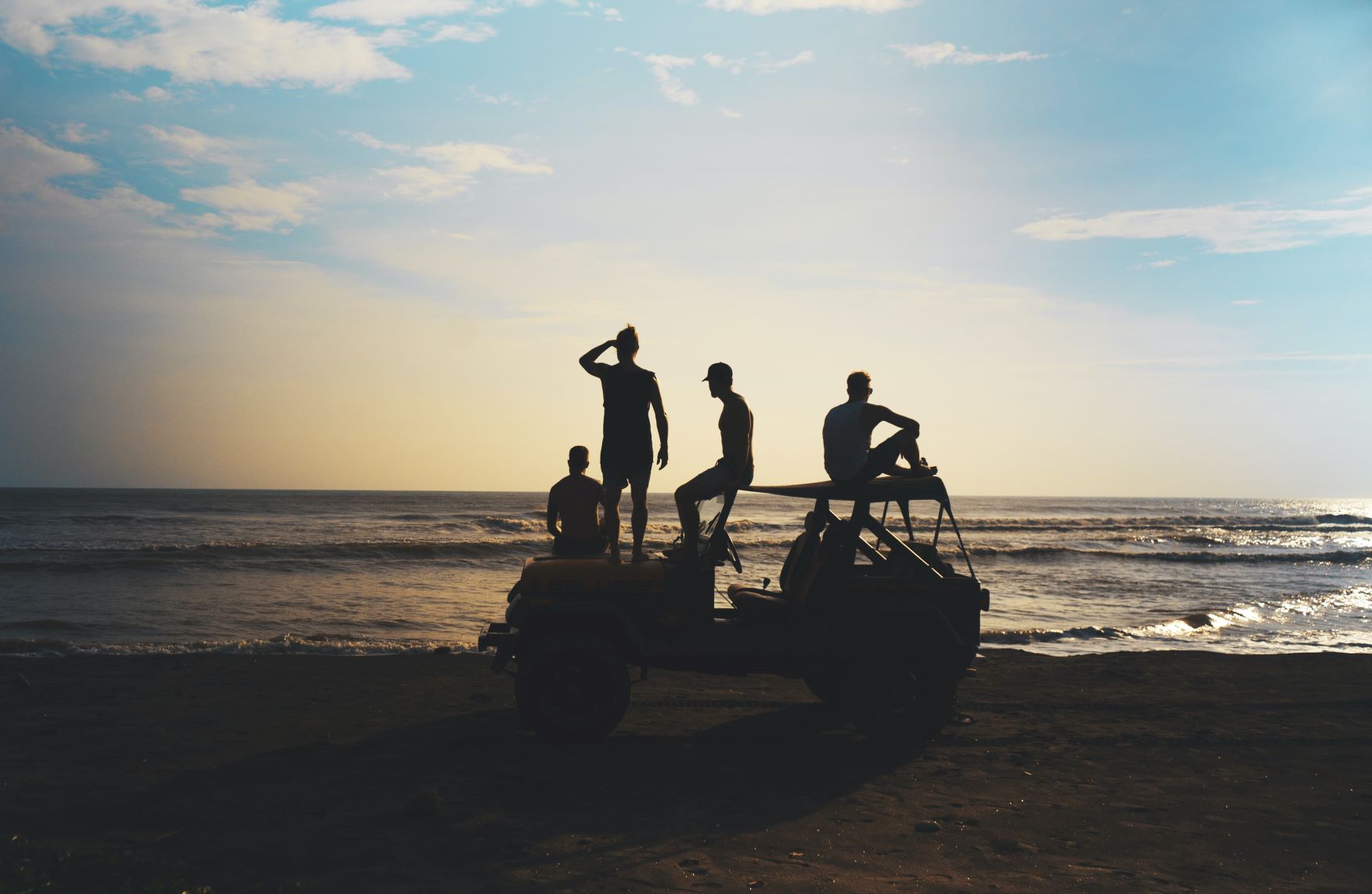
Please keep in mind that the requirements and procedures for traveling to Indonesia in 2024 may change at any time. We highly recommend that you contact your own country’s embassy before traveling to Indonesia.
Prepare your perfect Indonesia experience by following our detailed guide: Indonesia Travel Guide: Important Information You Should Know Before Traveling to Indonesia
FEATURED ARTICLES

How to Register Your Mobile Phone IMEI Number in Indonesia (Update 2024)

All About Bornean Orangutans and Jungle Boat Trips
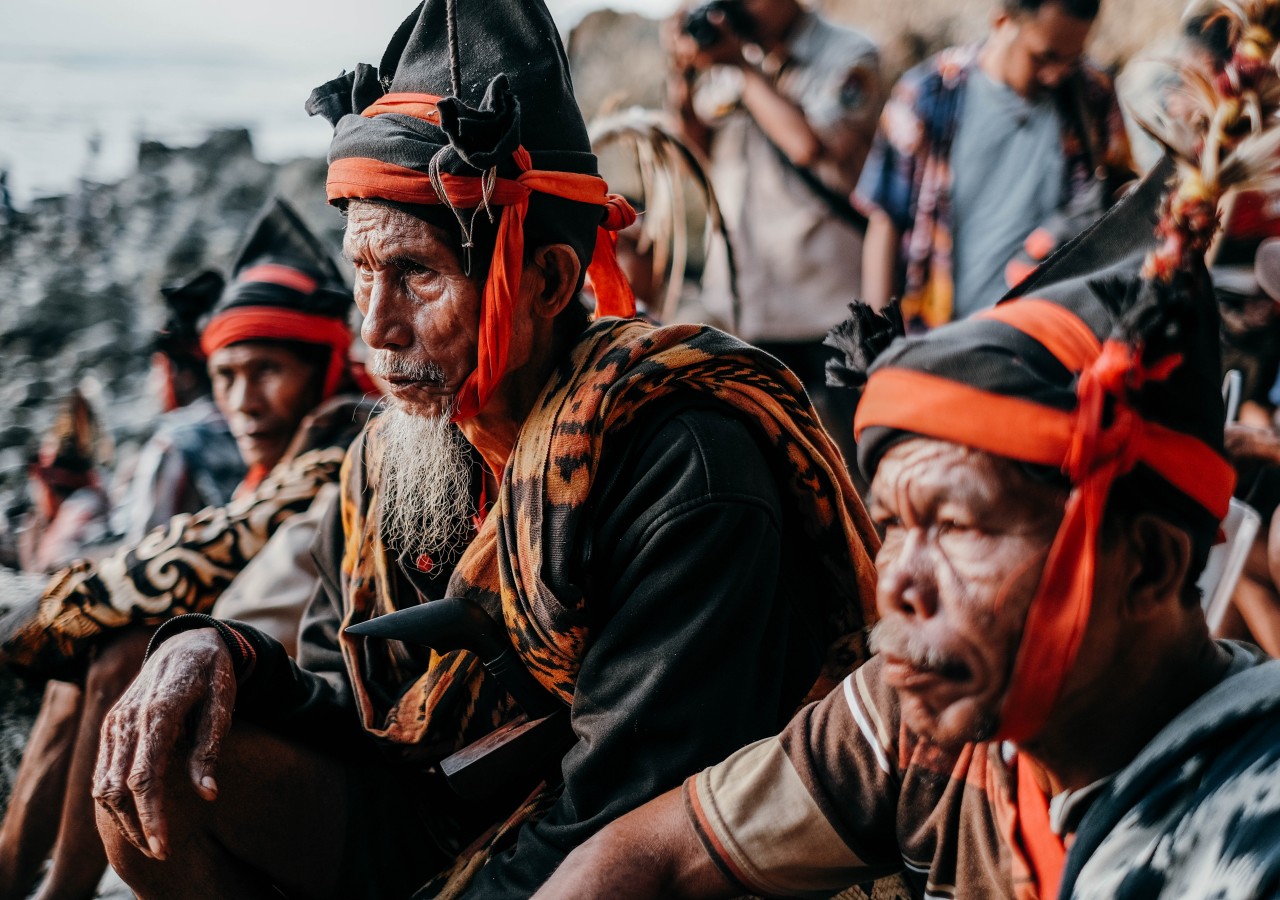
Discover SUMBA ISLAND & its incredible PASOLA FESTIVAL

Learn Bahasa Indonesia: LESSON 1 – INTRODUCTION
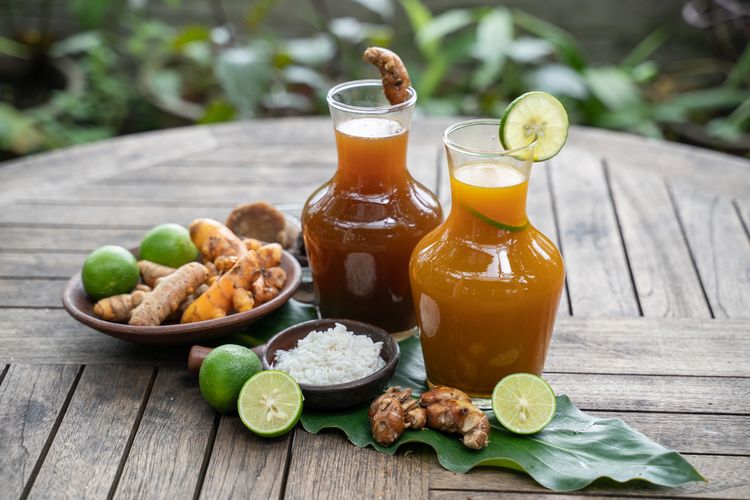
Traditional Indonesian drink: JAMU

Indonesia Travel Guide: All the information you would like to know before travel to Indonesia

Swimming with Whale Sharks: Where to find these Giants in Indonesia

A Guide to the Best Restaurants, Bars, and Beach Clubs in Bali
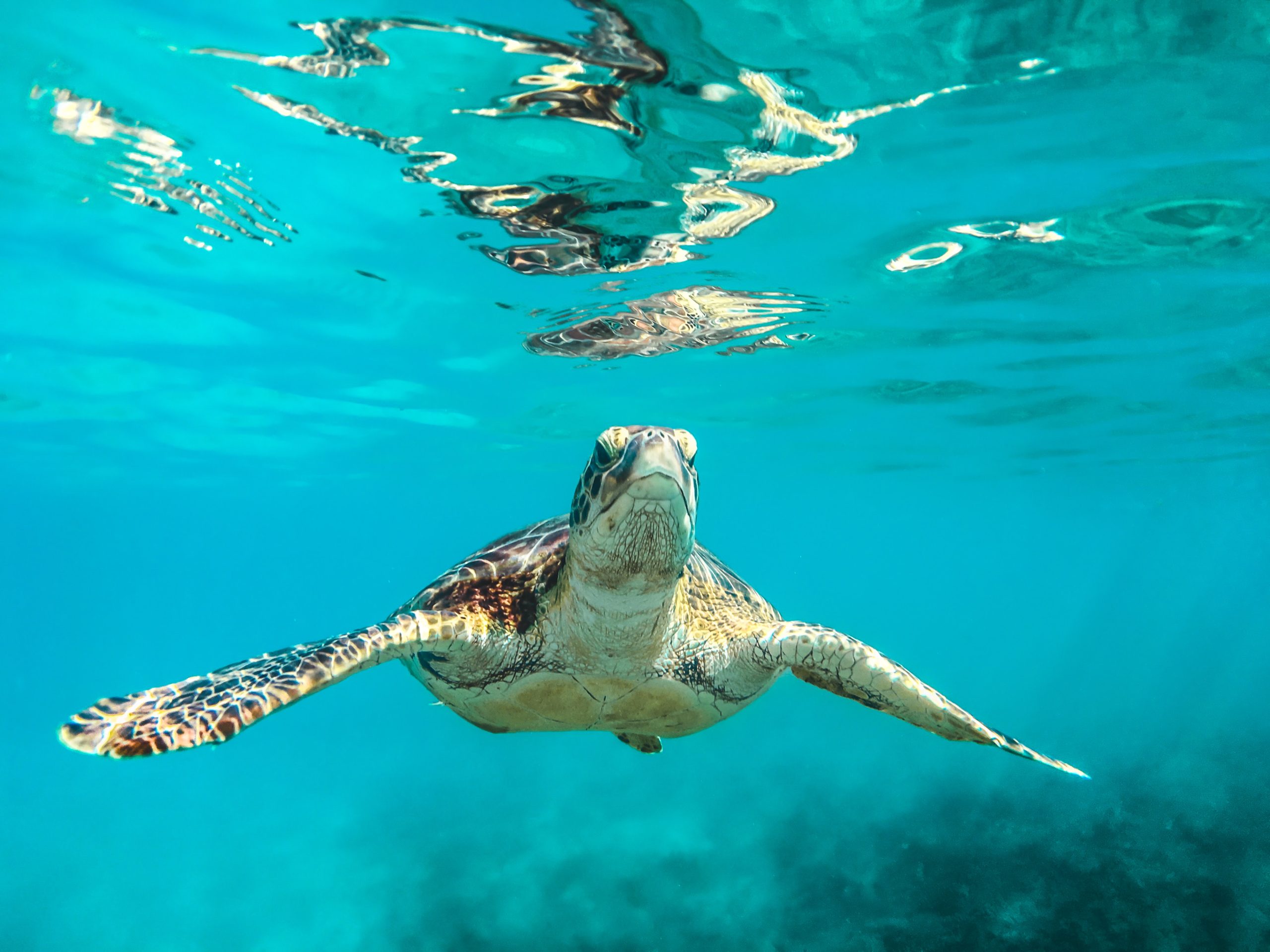
Gili Islands Travel Guide: Discover the charms of Gili Trawangan, Gili Air, and Gili Meno
Recommended trips.

Bali Ubud and Nusa Dua (9D/8N)
6 nights in Ubud 2 nights in Nusa Dua Travel with transfers included Island of the Gods

Bali Temples, Village Life & Natural Beauty (6D/5N)
Based in Ubud Village life activity Jatiluwih rice fields Cepung Waterfall Tanah Lot Temple

Borneo Bali Nusa Penida and Gili (17D/16N)
5 nights in Ubud 3 Nights hotel stay in Nusa Penida 3D2N Borneo Orangutan Tour based with private klotok Travel with transfers included Island of the Gods
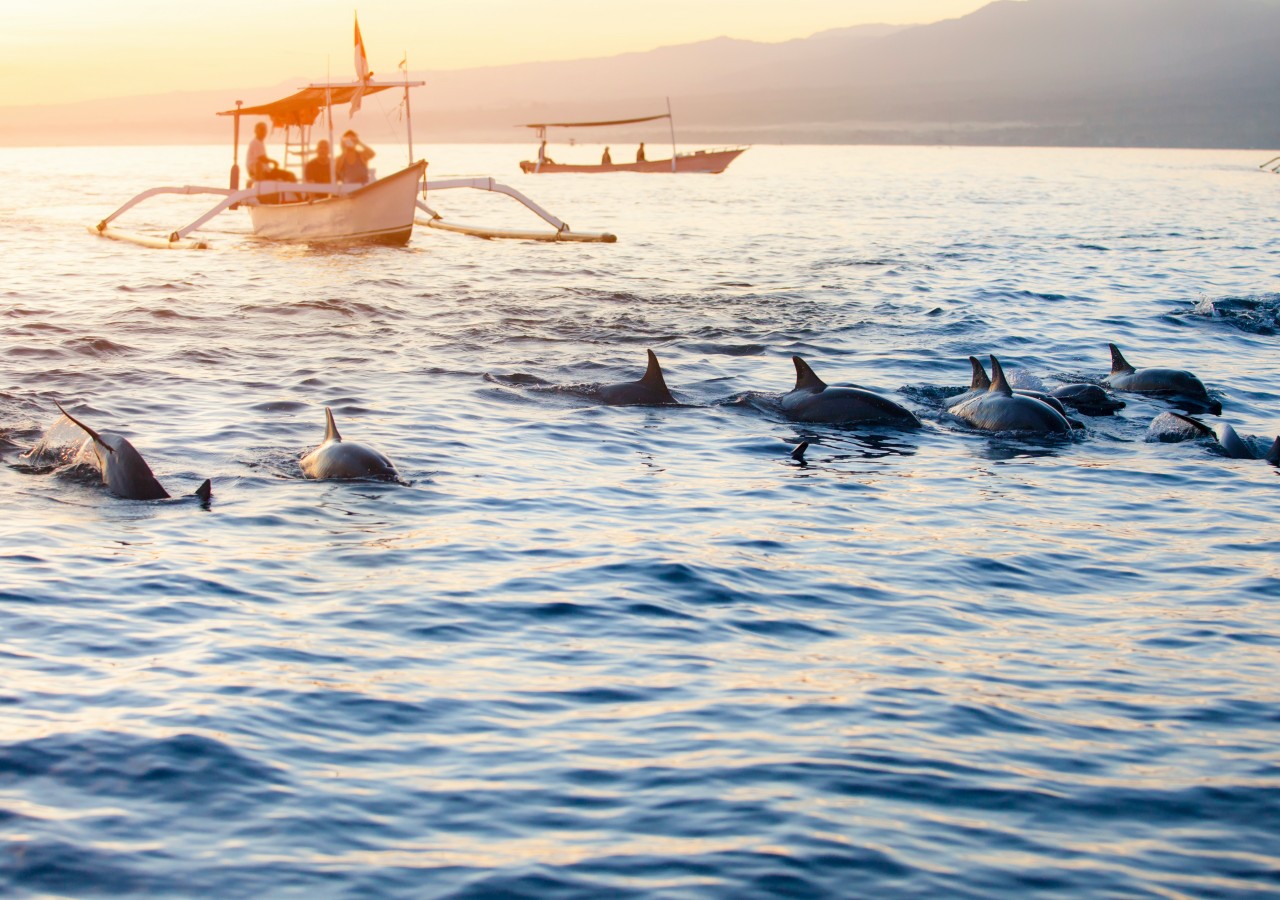
Bali Island Tour: Lovina Dolphins, Kintamani Highlands & Ubud (5D/4N)
Different hotels each night Lovina dolphins Kintamani Tenganan Village Besakih Mother Temple

Bali Ubud and Uluwatu (8D/7N)
4 nights in Ubud 3 nights in Uluwatu 1X Half Day Tour Uluwatu and Kecak Dance Travel with private guide Island of the Gods

Bali Most Famous Temples (4D/3N)
Based in Ubud Ulun Danu Bratan Temple Jatiluwih rice fields Mother Temple Besakih Tanah Lot Temple
Destinations

Email address:
Article author

SHARE THE POST WITH YOUR FRIENDS
You to have a toll-free phone number for calling from the United States of America to get your travel guide from your country. That is if you people come and visit and tour country.
Leave a Reply Cancel Reply
Save my name, email, and website in this browser for the next time I comment.
¡Darme de alta en la newsletter!
You are using an outdated browser. Please upgrade your browser to improve your experience.
Information about the Indonesia Electronic Customs Declaration
About the indonesia electronic customs declaration.
The Indonesia Electronic Customs Declaration (e-CD) is a mandatory form for anyone entering Indonesia from overseas.
If you are going to visit Indonesia you must complete the e-CD. This includes if you are a citizen or resident of Indonesia .
The Indonesia e-CD form is required by all passengers, regardless of the goods they carry . You must state on the form if you have any restricted goods, and pass through the correct customs channel when you arrive.
You can complete the Indonesia Electronic Customs Declaration easily online before you travel. This saves time and ensures you have the correct form in advance.
Who Needs a Indonesia Electronic Customs Declaration
All passengers traveling to Indonesia must complete the Indonesia Electronic Customs Declaration application form .
Please check the list below to find your country of citizenship:
Country not available
Please check if the country you are looking for is spelled correctly.
No result found
Document requirements for the Indonesia Electronic Customs Declaration
You will need the following items to complete the online Indonesia Electronic Customs Declaration:
- Email address
- Credit or debit card
- Information on goods you will bring
Online Form for the Indonesia Electronic Customs Declaration
You are required to complete the online e-CD form with certain information related to you, your travel plans, and the goods you will carry.
Required information includes
- Date of birth
- Country of birth
- Country of citizenship
- Passport details
- Telephone number
- Travel details
- Goods you are carrying
Click here o complete the Indonesia Electronic Customs Declaration form online.
Check the Status of Your Indonesia Electronic Customs Declaration
You will receive all correspondence, and your completed Indonesia e-CD form, by email.
The processing time is between 1 and 2 days.
To check the status of your Indonesia Electronic Customs Declaration, please click here

Your personal information is securely encrypted by Secure Sockets Layer (SSL) software

- Indonesia Electronic Customs Declaration Information
- Privacy policy
- Refund policy
- Terms & Conditions
- Terms of Use
Legal Disclaimer: www.indonesiaecd.com is not affiliated with the Government or its sponsors.
Articles Travel Requirements - Indonesia
Explore other articles and discussions on this topic.
15/06/2023 • FAQs
Information.
*Important Reminder : This page serves as your guidance only.
AirAsia adheres to the highest standards of safety at all times. The list of travel requirements info stated here are a compilation of summarised regulations in the countries/destinations where our flights are operating. As the travel requirements worldwide continue to change from time to time, there are times when the information stated below might not be up-to-date and may be obsolete at the time you are viewing it. Therefore, for more reliable, latest, and verified information in your destinations, we strongly encourage all travelling guests to also check the travel restrictions with the respective government of your destination and arrival country / state directly prior travelling with us.
Indonesia Travel Restrictions and Requirements Summary Indonesian Government encourages all incoming passengers to Indonesia to install and activate the SatuSehat application. This app will enhance the effectiveness of contact tracing, ensuring a safer travel experience for everyone. For more information about the app, please visit https://faq.kemkes.go.id/category/satusehat-mobile . You may also download the app from Apple App Store and Google Play Store .
Pre Departure
Travellers must complete customs declaration form at https://ecd.beacukai.go.id/ within 72 hours of their flight.
Vaccination Requirements
There is no requirement to present a vaccination certificate upon arrival in Indonesia. Guests are allowed to enter the country regardless of their vaccination status.
Travel Notice AirAsia guests with domestic flights to and from Jakarta will depart and arrive at Terminal 1A from April 12, 2022 onwards. Meanwhile, international flights will operate from Terminal 2F of the Soekarno-Hatta International Airport.
Face Mask Policy Passengers are not permitted to use the type of mask that is fitted with exhalation / breathing valves. This is in line with CDC, WHO and CAAC 6th Edition Safety Recommendations on Prevention and Control Measures During Flight. Please see our FAQ page on Prohibition of Mask with Exhalation/Breathing Valves Onboard for further information. Note: Effective 28 September 2022, the Malaysian government has announced that face masks are no longer mandatory on flights, AirAsia Malaysia (AK). Refer here for the usage of face masks on AirAsia flights.
How to fill in the Indonesian customs declaration form online from your smartphone
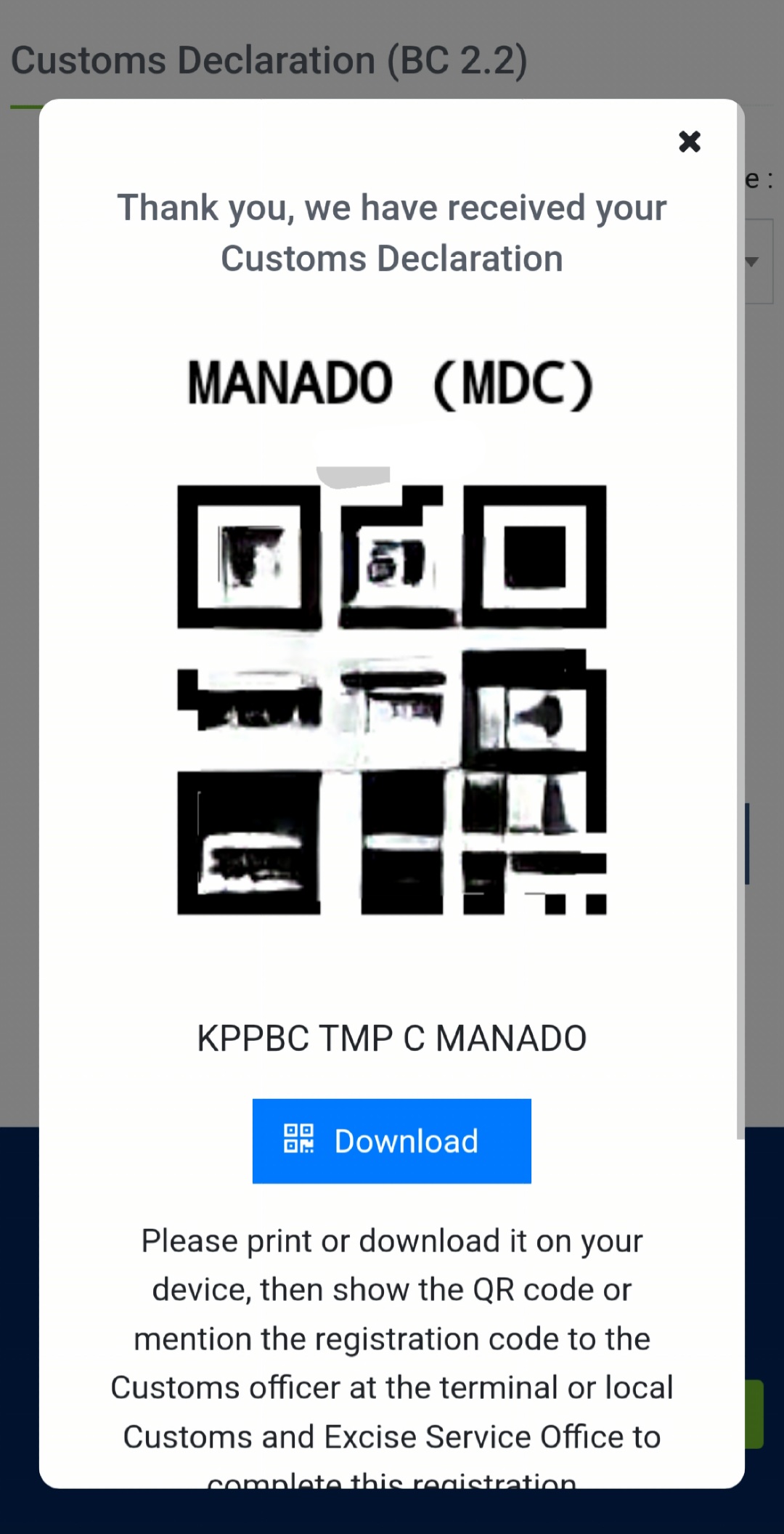
When entering Indonesia, a customs declaration form is required. This can be done on a paper declaration form, but you can now complete the declaration form online in advance.
If you can fill in the customs declaration form online in advance, it is likely to reduce the time required for Indonesian immigration clearance.
So in this article, we will share how to fill in the Indonesian customs declaration form online from your smartphone.
Filling the Indonesian customs declaration form online
Get indonesian customs declaration form qr code, you can also use your smartphone to fill in the indonesian customs declaration form.
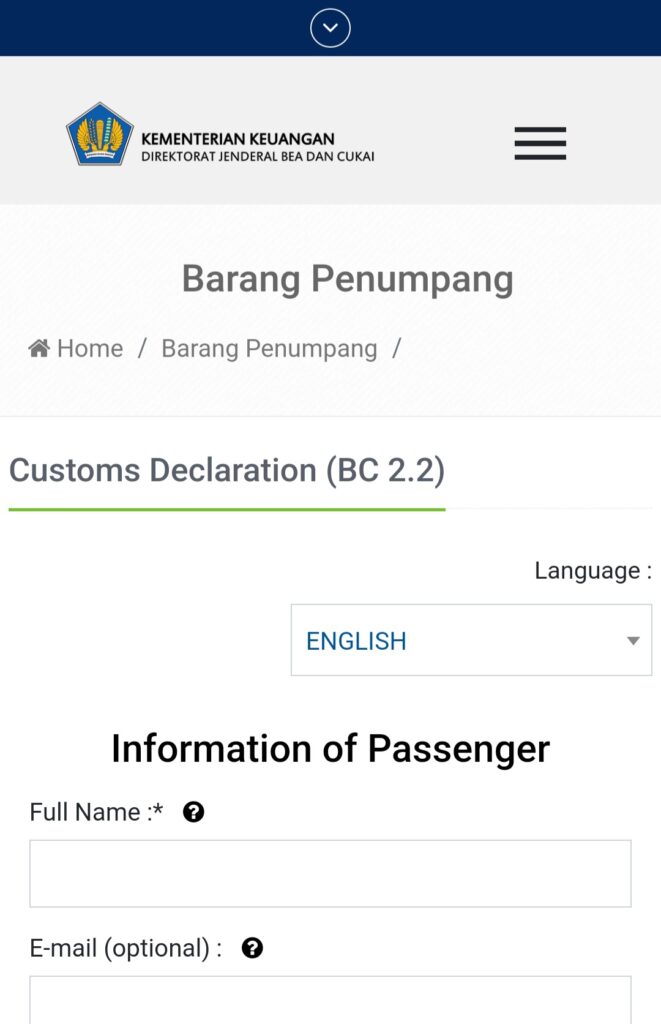
When entering Indonesia, the customs declaration form is required in addition to the visa. It is possible to pre-declare online, but please note that you can only apply for the form two days before arrival.
You can apply for the Customs Declaration online at the Customs Declaration online application website .
You will be asked about the information in your passport and your occupation. You will also be asked to provide information about your arrival flight.
Next, you will be asked to provide information about your luggage. You will be asked how many pieces of luggage you are carrying, how many pieces of unaccompanied luggage and how many family members are accompanying you.
Next, answer the questions about the items you are bringing with you with a Yes or No. After a final check, tick the declaration ‘I declare the truth’ and click ‘Send’.
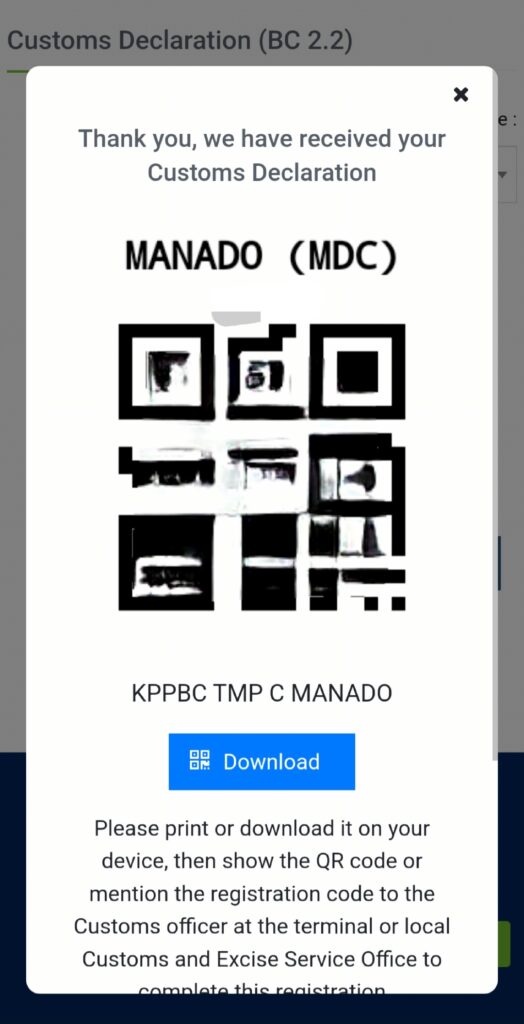
Once you have completed the Indonesian Customs Declaration, you will be issued with a QR Code, which you can either print out or download to your smartphone and bring with you.
You can scan it at customs when entering Indonesia.
We used our smartphone to fill in the Indonesian customs declaration form. The process was smooth enough with a smartphone.
Also, one family can fill in the form together, entering personal details for each family member.
You also need a visa to enter Indonesia. We obtained our Arrival visa online.

- Philippines
- Border Crossing
- Travel Plan and Preparations

- All Posts 40
- Latest Updates 8
- Entry & Exit Requirements 4
- Travellers Info 9
- Health & Safety 4
- Official Sites & Useful Links 6
- Campaigns 9
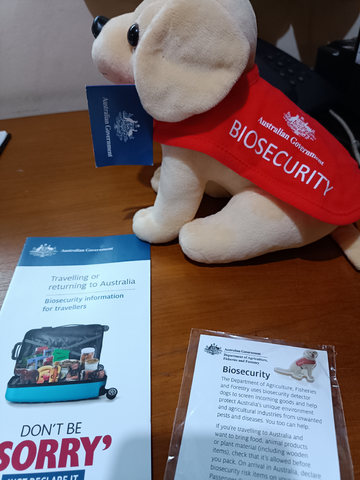
Customs Declaration Form Online
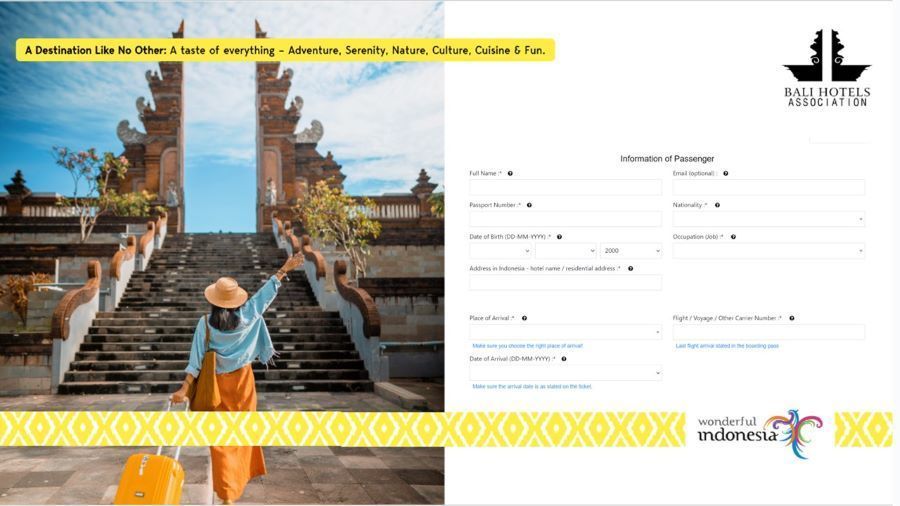
Please note that you must complete the Customs Declaration form online. The form can be completed 3 days before arrival in Bali. One form per family is allowed. You can save the QR code to your phone or you can print it out.
If you arrive in Bali and go to the customs checking area without the QR code you will be asked to go and complete the form and queue again. You are also holding up other people so please do this before landing in Bali. Official Website Direktorat Jenderal Bea dan Cukai (beacukai.go.id)
https://ecd.beacukai.go.id/
Trending Now
Please ensure that you carefully read and understand our disclaimer.
This website is presented by the Bali Hotels Association[BHA]. It's purpose is to share travel advice and information with the public about Bali. BHA endeavours to provide up-to-date and accurate advice on this website, However, BHA does not guarantee the accuracy, reliability, currency or completeness of any material on this or any linked site. BHA accepts no legal liability arising from or connected to any material on this website or on any linked site. Welcome Back To Bali content The information on Welcome Back To Bali, is to help travellers to Bali to make informed decisions about traveling to Bali and staying in Bali. This includes information in official destination-specific travel advisories and general advice. All travelers need to take responsibility for their travel decisions. The information on Welcome Back To Bali isn't intended to be, nor should it be relied on, as a substitute for legal or other professional advice. Users should obtain any appropriate professional advice relevant to their particular circumstances. Articles are reviewed regularly by our editorial team to ensure that the content is up to date and accurate. Please return to the site as required and subscribe to updates to ensure you have the latest advice. Links and third-party content The material on this website may include the views or advice of third parties. It also includes links to external websites. These do not necessarily reflect the views of BHA
Due to the ever-changing nature of the regulations, we strongly advise that you check with your airline before you travel.
- Latest Updates
- Entry & Exit Requirements
- Travellers Info
- Health & Safety
- Official Sites & Useful Links
Share This Content
We’re sorry, this site is currently experiencing technical difficulties. Please try again in a few moments. Exception: request blocked
Security Alert May 17, 2024
Worldwide caution, update may 10, 2024, information for u.s. citizens in the middle east.
- Travel Advisories |
- Contact Us |
- MyTravelGov |
Find U.S. Embassies & Consulates
Travel.state.gov, congressional liaison, special issuance agency, u.s. passports, international travel, intercountry adoption, international parental child abduction, records and authentications, popular links, travel advisories, mytravelgov, stay connected, legal resources, legal information, info for u.s. law enforcement, replace or certify documents.
Before You Go
Learn About Your Destination
While Abroad
Emergencies
Share this page:
Travel Advisory July 24, 2023
Indonesia - level 2: exercise increased caution.
Reissued with obsolete COVID-19 page links removed.
Exercise increased caution in Indonesia due to terrorism and natural disasters. Some areas have increased risk. Read the entire Travel Advisory.
Do Not travel to:
- The provinces of Central Papua (Papua Tengah) and Highland Papua (Papua Pegunungan) due to civil unrest.
Terrorists continue plotting possible attacks in Indonesia. Terrorists may attack with little or no warning, targeting police stations, places of worship, hotels, bars, nightclubs, markets/shopping malls, and restaurants.
Natural disasters such as earthquakes, tsunamis or volcanic eruptions may result in disruptions to transportation, infrastructure, sanitation, and the availability of health services.
Demonstrations occur frequently and have the potential to become violent. Avoid demonstrations and crowds.
Indonesia’s revised criminal code, which takes effect January 2026, includes penalties for defamation, blasphemy, cohabitation, and sex outside of marriage. It is unclear how Indonesian authorities will implement the revised criminal code.
Read the country information page for additional information on travel to Indonesia.
If you decide to travel to Indonesia:
- Monitor local media for breaking events and be prepared to adjust your plans.
- Visit the websites for Badan Geologi (Indonesian Geological Agency, Indonesian language only) for the latest information from the Government of Indonesia on current natural disasters.
- Review the CDC’s suggestions on how to prepare for natural disasters.
- Be aware of your personal safety and security at all times.
- Enroll in the Smart Traveler Enrollment Program ( STEP ) to receive alerts and make it easier to locate you in an emergency.
- Ensure your passport is valid for at least six months beyond your intended stay.
- Follow the Department of State Facebook and Twitter . Follow the U.S. Embassy Jakarta on Facebook , Instagram , and Twitter .
- Review the Country Security Report for Indonesia.
- Prepare a contingency plan for emergency situations. Review the Traveler’s Checklist .
Central Papua and Highland Papua– Level 4: Do Not Travel
In Central Papua and Highland Papua, violent demonstrations and conflict could result in injury or death to U.S. citizens. Avoid demonstrations and crowds. Armed separatists may kidnap foreign nationals.
The U.S. government has limited ability to provide emergency services to U.S. citizens in Central Papua and Highland Papua as U.S. government employees must obtain special authorization before traveling to those areas.
Embassy Messages
View Alerts and Messages Archive
Quick Facts
Six months beyond arrival date. Indonesia does not accept the 12-page U.S. emergency passport for entry into Indonesia.
Two blank visa pages required for entry stamp
Yes, Visa or Visa on Arrival
100,000,000 Indonesian rupia (approx. $7,000 USD)
Embassies and Consulates
U.s. embassy jakarta.
Jl. Medan Merdeka Selatan No. 3 - 5 Jakarta 10110, Indonesia Telephone: +(62)(21) 5083-1000 Emergency After-Hours Telephone: +(62)(21) 5083-1000 ext. 0 (operator) Email: [email protected]
U.S. Consulate General Surabaya Jl. Citra Raya Niaga No. 2 Surabaya 60217 Indonesia Telephone: +(62)(31) 297-5300 Emergency After-Hours Telephone: +(62)(811) 334-183 Email: [email protected]
U.S. Consular Agency Bali Jalan Hayam Wuruk 310, Denpasar, Bali Telephone: +(62)(361) 233-605 Emergency After-Hours Telephone: Please contact the U.S. Consulate in Surabaya:+(62)(811) 334-183 Email: [email protected]
American Consulate Medan, Sumatra Uni Plaza Building 4th Floor (West Tower) Jl. Let. Jend. MT Haryono A-1 Medan 20231, Indonesia Telephone: +(62)(61) 451-9000 Emergency After-Hours Telephone: +(62)(61) 451-9000 Email: [email protected]
The U.S. Consulate in Medan provides only emergency assistance to U.S. citizens and does not offer routine consular services.
Destination Description
See the Department of State’s Fact Sheet on Indonesia for information on U.S.- Indonesia relations.
Entry, Exit and Visa Requirements
Entry Requirements: To enter Indonesia, your passport must have at least two blank pages and be valid for at least six months beyond the date of your arrival in Indonesia. If your passport does not meet these requirements, you will be denied entry into Indonesia. The Government of Indonesia will not admit travelers holding the 12-page U.S. emergency passport, issued by U.S. embassies and consulates overseas.
Visa-on-Arrival: If you meet the requirements, you can apply for a visa on arrival at some international airports, seaports, or land crossings. To apply for the visa on arrival, you must have an ordinary (non-emergency) passport with at least 6 months of validity from the date you plan to enter and the date you plan to leave Indonesia and a return or onward flight booking to another country. There is a 500,000 Indonesian Rupiah fee (about $35). The visa on arrival is valid for up to 30 days. You may extend a Visa-on-Arrival once at the immigration office one week before it expires for an additional 30 days for a maximum of 30 additional days, for another 500,000 Rupiah.
- Official visit or government duties;
- Business meeting;
- Procurement of goods;
- Official meeting; or
Electronic Visa-On-Arrival: You may also apply for an electronic Visa on Arrival (e-VOA) in advance if you are entering Indonesia at Soekarno-Hatta International Airport in Jakarta or Ngurah Rai International Airport in Bali. Check the e-VOA requirements from Indonesian Immigration before applying. To apply for an e-VOA see https://molina.imigrasi.go.id/ .
Visa: Travel for more than 30 days and travel for non-VOA purposes, including employment and journalism, requires that the appropriate visa be obtained from an Indonesian embassy or consulate before arrival. If you are traveling on an emergency passport, you must obtain a visa before arrival in Indonesia.
If you overstay your visa, you are subject to a fine of 1 million Indonesian rupiah (about $70 USD at current exchange rates; fees may change at any time) per day and may be detained and deported. U.S. citizens have been jailed for visa overstays or entering the country on the wrong visa class for their purpose of travel . Travelers coming to Indonesia for non-tourism purposes are strongly encouraged to consult Indonesian Immigration’s website. Travelers should generally carry a copy of their passport with them whenever possible to establish their identity and proof of Indonesian visa.
You must exit Indonesia using the same passport that you used to enter. If this passport is replaced for any reason before you depart Indonesia, you must apply with Immigration to obtain a “special pass” (exit permit) in your new passport prior to departing.
Dual-Nationality: Indonesia has laws that prohibit Indonesian citizens from holding additional nationalities. If you are an Indonesian with dual nationality, you could be compelled to renounce your Indonesian nationality through a formal act of renunciation. Please research Indonesian nationality laws and consult with a local attorney regarding any specific circumstance.
The U.S. Department of State is unaware of any HIV/AIDS entry restrictions for visitors to or foreign residents of Indonesia. The Government of Indonesia screens incoming passengers in response to reported outbreaks of pandemic illnesses.
Find information on dual nationality , prevention of international child abduction , and customs regulations on our websites.
Safety and Security
Terrorism: Terrorist groups and those inspired by such organizations are intent on attacking U.S. citizens abroad. Terrorists are increasingly using less sophisticated methods of attack – including knives, firearms, and vehicles – to target crowds. Frequently, their aim is unprotected or vulnerable targets, such as:
- High-profile public events (sporting contests, political rallies, demonstrations, holiday events, celebratory gatherings, etc.)
- Hotels, clubs, and restaurants frequented by tourists
- Places of worship
- Shopping malls and markets
- Public transportation systems (including subways, buses, trains, and scheduled commercial flights)
Extremists in Indonesia aspire to carry out violent attacks against Indonesian and foreign targets, and police have arrested more than 1,200 individuals on terrorism-related charges since 2018. Extremists may target both official and private establishments, including government offices, hotels, bars, nightclubs, shopping areas, restaurants, and places of worship. Be aware of your personal safety and security at all times.
Recent incidents of extremist violence include a December 2022 suicide bombing at a police station in Bandung, West Java that killed one police officer, a March 2021 bomb attack against a church in Makassar, South Sulawesi which injured 20 civilians, and May 2018 bomb attacks against three churches in Surabaya, East Java which killed 15 civilians and injured 50.
Demonstrations are very common in Jakarta, Surabaya, and other large cities, but less common in Bali. You should avoid demonstrations and other mass gatherings, since even those intended to be peaceful can become violent. U.S. citizens have been detained for participating in protests. Demonstrations may become more frequent ahead of the Indonesian general elections scheduled for February 2024.
Currently, travel by U.S. government personnel to the provinces of Central Papua (Papua Tengah) and Highland Papua (Papua Pegunungan) is restricted to mission-essential travel that is approved in advance by the Embassy. Papuan separatists have kidnapped foreigners in the past and a New Zealand national was kidnapped by a separatist group in Nduga Regency in February 2023.
For more information, see our Terrorism page.
Crime: In the last year several American citizens were victims of violent and serious crimes in Indonesia, particularly in Bali. As with any major tourist destination, U.S. citizens traveling in Indonesia are especially encouraged to always remain vigilant of their surroundings and read the following advisories carefully. Take sensible measures to protect yourself and your belongings. Closely monitor bags and luggage and carry only essential items. Take particular care of your passport and bank cards and avoid traveling alone.
Police presence and responsiveness is less than it is in the United States, making it more difficult to report crimes quickly and receive police attention. U.S. citizens often cite language barriers as a major hindrance when reporting crimes.
Pickpocketing, sexual assault, vehicle theft, armed car-jacking, snatch and grab robberies of cell phones and purses, and residential break-ins are common. Avoid traveling to isolated areas late at night. Be aware of your surroundings, particularly vehicles or individuals that might be following you.
Use a reputable taxi company or hire a taxi either at a major hotel or shopping center and ensure the driver’s identity card is visible. If you are booking a car via a mobile app, always ensure that the driver is the same as the person on the app, share your journey with a friend via the in-app option, and know the contact information for the app’s security center. Be aware of drivers falsely claiming to be registered with online ride hailing apps.
Credit card fraud is a common problem in Indonesia. Criminals have “skimmed” credit/debit cards to access and drain bank accounts. Use an ATM in a secure location, such as a major bank branch, and check the machine for evidence of tampering. Monitor your account statements regularly.
Tourists and Indonesians have suffered from serious illness and have even died from "drink-spiking” and drink poisoning incidents, particularly in clubs and nightspots in urban and tourist areas. There have been reports of sexual assaults and drink spiking in Bali, Lombok, and the Gili Islands. Make sure drinks are prepared in your sight and be careful about accepting drinks from strangers at clubs and parties or leaving drinks unattended. Tourists have also been robbed after taking visitors to their hotel rooms, and in some cases have found that their drinks were spiked. There have also been deaths and serious illnesses caused by drinking alcoholic drinks contaminated with methanol. These cases have occurred in bars, shops, and hotels in popular tourist areas like Bali, Lombok, the Gili Islands, and Sumatra.
Sexual Assault: Women travelling alone may be subject to harassment and verbal abuse. Sexual assault, harassment, and rape occur. To minimize the risk, avoid travelling alone, especially at night; remain particularly vigilant in less populous areas; and be careful when dealing with strangers or recent acquaintances. Never leave food or drinks unattended or in the care of strangers. Be wary of accepting snacks, beverages, gum, or cigarettes from new acquaintances. These items may contain drugs that could put you at risk of sexual assault and robbery. Local authorities may not respond adequately to reports of sexual violence and harassment. If you are the victim of a sexual assault, you should report it immediately to local authorities and to the U.S. Embassy or U.S. Consulate General.
Demonstrations occur frequently. They may take place in response to political or economic issues, on politically significant holidays, and during international events.
- Demonstrations can be unpredictable. Avoid areas around protests and demonstrations.
- Past demonstrations have turned violent.
- Check local media for updates and traffic advisories.
- Participating in demonstrations on a tourist visa can lead to deportation.
International Financial Scams: See the Department of State and the FBI pages for information.
Internet romance and financial scams occur in Indonesia. Scams are often initiated through Internet postings/profiles or by unsolicited emails and letters. Scammers almost always pose as U.S. citizens who have no one else to turn to for help. Common scams include:
- Romance/Online dating
- Money transfers
- Lucrative sales
- Gold purchase
- Contracts with promises of large commissions
- Grandparent/Relative targeting
- Free Trip/Luggage
- Inheritance notices
- Work permits/job offers
- Bank overpayments
Victims of Crime:
Sexual assault: U.S. citizen victims of sexual assault should seek prompt medical assistance, contact the Embassy or nearest Consulate, and call the local police at 112. For a criminal investigation to be initiated by the police, the victim must make a full statement to the local police, in person. Remember that local authorities are responsible for investigating and prosecuting crime. U.S. citizen victims of sexual assault may choose to be accompanied by a translator.
See our webpage on help for U.S. victims of crime overseas .
- Help you find appropriate medical care
- Assist you in reporting a crime to the police
- Contact relatives or friends with your written consent
- Explain the local criminal justice process in general terms
- Provide a list of local attorneys
- Provide our information on victim’s compensation programs in the U.S.
- Provide an emergency loan for repatriation to the United States and/or limited medical support in cases of destitution. Follow this link for more information
- Help you find accommodation and arrange flights home
- Replace a stolen or lost passport
Domestic Violence: U.S. citizen victims of domestic violence are encouraged to contact the Embassy for assistance.
Tourism: The tourism and recreational activity industries are unevenly regulated, and safety inspections for equipment and facilities do not commonly occur. Hazardous areas/activities are not always identified with appropriate signage, and staff may not be trained or certified either by the host government or by recognized authorities in the field. Water sports, especially diving, can be hazardous in Indonesia with operators lightly regulated and hyperbaric chambers available only in Bali and Ambon. Traffic is hazardous in Indonesia and U.S. citizens are frequently injured while riding rented motorbikes. Wearing a helmet is required by law. In the event of an injury, appropriate medical treatment is typically available only in/near major cities, and only basic stabilization may be available. Serious injuries require medical evacuation to another country. First responders are generally unable to provide urgent medical treatment or to access areas outside of major cities. Boat and ferry incidents are frequent; vessels rarely carry appropriate sizes and numbers of safety vests; passengers are encouraged to bring their own. U.S. citizens are strongly encouraged to purchase medical evacuation insurance. See our webpage for more information on insurance providers for overseas coverage ( http://travel.state.gov/content/passports/en/go/health/insurance-providers.html ).
Please note: The U.S. Embassy and Consulates do not pay the medical expenses of private U.S. citizens in Indonesia. It is the traveler’s responsibility to ensure adequate medical insurance coverage or funds for medical expenses.
Local Laws & Special Circumstances
Criminal Penalties: You are subject to Indonesian laws. If you violate local laws, even unknowingly, you may be expelled, arrested, or imprisoned. Criminal cases can take months or even years to resolve, and suspects can be held without charges for up to 60 days, and in many cases longer. Indonesia‘s revised criminal code, which takes effect January 2026, includes penalties for defamation, blasphemy, cohabitation, and sex outside of marriage. Enroll in the Smart Traveler Enrollment Program (STEP) to stay up-to-date.
If you are convicted of possession, use, or trafficking of illegal drugs in Indonesia, you may be subject to heavy fines, long jail sentences, and even the death penalty. Some prescription medications that are available in the United States are illegal in Indonesia. Some drugs used to treat attention deficit hyperactivity disorder (ADHD) are illegal in Indonesia. Marijuana, Cannabis, hash, “edibles,” and products containing CBD or THC remain illegal in Indonesia, including for medicinal purposes. A medical prescription does not make it legal. If you take such products to Indonesia or purchase or use them in Indonesia, you can be arrested and face imprisonment, fines, deportation, or the death penalty. Illegal drug convictions often result in lengthy prison sentences, even at the simple possession level. Indonesian prison conditions are harsh and do not meet U.S. standards. Many prisons are overcrowded and provide minimal services. The costs of basic services, including healthcare, often must be borne by the prisoner.
Individuals establishing a business or practicing a profession that requires additional permits or licensing should seek information from the competent local authorities prior to practicing or operating a business.
Furthermore, some laws are also prosecutable in the United States regardless of local law. For examples, see our website on crimes against minors abroad and the Department of Justice website.
Arrest Notification: If you are arrested or detained, ask police or prison officials to notify the U.S. Embassy immediately. See our webpage for further information.
Counterfeit and Pirated Goods: Although counterfeit and pirated goods are prevalent in many countries, they may still be illegal according to local laws. You may also pay fines or have to give them up if you bring them back to the United States. See the U.S. Department of Justice website for more information.
Faith-Based Travelers: See the following webpages for details:
- Faith-Based Travel Information
- nternational Religious Freedom Report – see country reports
- Human Rights Report – see country reports
- Hajj Fact Sheet for Travelers
- Best Practices for Volunteering Abroad
LGBTQI+ Travelers: LGBTQI+ status or conduct is not illegal, but local authorities sometimes take legal action against, or tolerate harassment of people engaging in LGBTQI+ relationships or openly expressing LGBTQI+ identity. Some local governments have passed laws criminalizing LGBTQI+ relationships. Same-sex marriages or civil unions recognized as valid in other countries are not legally recognized in Indonesia. The Indonesian Parliament revised the criminal code to include penalties for cohabitation and sex outside of marriage. These revisions, however, will not come into force until January 2026, and how they will be implemented is unclear.
See our LGBTQI+ Travel Information page and section 6 of our Human Rights report for further details .
Sharia Law: Sharia law is enforced in Aceh province and may exist unofficially or through local legislation in other areas. The law is intended for Muslims and should not apply to non-Muslims or foreign visitors. You should be respectful of local traditions, mindful of social norms, and seek guidance from local police if confronted by Sharia authorities.
Earthquakes and Tsunamis: There are approximately 4,000 earthquakes per year in Indonesia, or more than 10 per day on average. While most earthquakes are mild, some cause significant destruction and can trigger tsunamis. Tsunami warning systems may not be operable, or reports of tremors and tsunamis may be delayed. Local construction standards are lower than in the United States, and many structures including hotels and malls are prone to damage or collapse in an earthquake. Access to disaster-affected areas is often difficult and assistance from the U.S. Embassy may be limited.
If a major earthquake or landslide occurs close to shore, you should follow the instructions of local authorities, bearing in mind that a tsunami could arrive within minutes. The Indonesia Tsunami Early Warning Centre issues tsunami warnings when a potential tsunami with significant impact is imminent or expected.
Volcanoes: There are 127 active volcanoes in Indonesia. Eruptions frequently cause travel delays, displace local populations, and disrupt economic activities.
Environmental Quality: Air quality in Indonesia’s major cities can range from "unhealthy for sensitive groups" to "unhealthy." Current air quality data for Jakarta can be found on the Embassy’s Air Quality page. Tap water is not potable throughout Indonesia and should not be consumed.
Mountain Hiking: When hiking in mountainous areas, obtain current information on local conditions, travel with a reputable guide, have overseas medical insurance, and carry a local mobile phone. Never go hiking or climbing alone. Particularly dangerous trails may not be clearly labeled as such. Hikers on Puncak Jaya in Papua should have realistic primary and backup plans for climbing down the mountain. Tour operators have abandoned climbers. Taking shortcuts through private property is considered trespassing and is not a safe or legal alternative to a proper plan. If possible, ensure your hiking plans are registered and known to local authorities and/or tourism operators, as this helps identify your presence in these areas in the event of an emergency.
Dual Nationality: Indonesian law does not recognize dual nationality for adults over 18 years of age. U.S. citizens who are also Indonesian nationals may be required to renounce their Indonesian citizenship and may also be deported. Please visit our Dual Nationality page .
Travelers with Disabilities: Persons with disabilities will face severe difficulties in Indonesia as most public places and transportation facilities do not accommodate disabled people. The law in Indonesia prohibits discrimination against persons with mental and physical disabilities, but the law is seldom enforced. Social acceptance of persons with disabilities in public is not as prevalent as in the United States. Expect accessibility to be extremely limited in public transportation, lodging, communication/information, and general infrastructure.
Students: See our Students Abroad page and FBI travel tips .
Women Travelers: Women traveling alone may be subject to harassment and verbal abuse. Sexual assault, harassment, and rape occur. To minimize the risk, avoid travelling alone, especially at night; remain particularly vigilant in less populous areas; and be careful when dealing with strangers or recent acquaintances. Never leave food or drinks unattended or in the care of strangers. Be wary of accepting snacks, beverages, gum, or cigarettes from new acquaintances. These items may contain drugs that could put you at risk of sexual assault and robbery. While domestic violence is illegal in Indonesia, these laws are rarely enforced. Local authorities may not respond adequately to reports of sexual violence and harassment. If you are the victim of a sexual assault, you should report it immediately to local authorities and to the U.S. Embassy or U.S. Consulate General and seek medical attention. See our travel tips for Women Travelers .
The Government of Indonesia requires all non-Indonesian citizens entering the country to be fully vaccinated against COVID-19.
Medical Care: For emergency services in Indonesia dial 112.
Sanitation and health care conditions in Indonesia are far below U.S. standards. Routine medical care is available in all major cities, although most expatriates leave the country for all but the most basic medical procedures. Physicians and hospitals often expect payment or sizable deposits before providing medical care, even in emergency and/or life-threatening situations. See our Embassy's website for a list of English-speaking doctors and hospitals, but keep in mind that even in large cities the quality of English-speaking medical personnel will vary and there are often communication difficulties. In remote areas there may be no English-speaking medical personnel. Psychological and psychiatric services are limited, even in the larger cities, with hospital-based care only available through government institutions.
Ambulance services are not widely available, and training and availability of emergency responders may be below U.S. standards. Ambulances are not staffed with trained paramedics and often have little or no medical equipment. Injured or seriously ill travelers may prefer to take a taxi or private vehicle to the nearest major hospital rather than wait for an ambulance.
We do not pay medical bills. Be aware that U.S. Medicare/Medicaid does not apply overseas. Most hospitals and doctors overseas do not accept U.S. health insurance.
Medical Insurance: Make sure your health insurance plan provides coverage overseas. Most care providers overseas only accept cash payments. See our webpage for more information on insurance providers for overseas coverage. Visit the U.S. Centers for Disease Control and Prevention for more information on type of insurance you should consider before you travel overseas.
We strongly recommend supplemental insurance to cover medical evacuation, which can exceed over $100,000 per person.
Always carry your prescription medication in original packaging, along with your doctor’s prescription. Be aware that Indonesian authorities may consider some prescription drugs as illegal narcotics. The Indonesian government does not publish a list of which pharmaceuticals are considered contraband, and these decisions may be arbitrary.
U.S. citizens are advised against mailing or shipping by courier any medications to Indonesia. Indonesian authorities pay close attention to packages containing pharmaceuticals and may detain or arrest recipients of both prescription and over the counter medications. Even if a medication is legal or has been prescribed in the United States, it may be considered an illegal narcotic in Indonesia. U.S. citizens are advised to only hand carry prescription medications into the country, in the original packaging with a copy of any prescription. The U.S. Embassy and Consulates cannot assist you with the importation and/or release of medications.
Marijuana, Cannabis, hash, “edibles,” and products containing CBD or THC remain illegal in Indonesia, including for medicinal purposes. A medical prescription does not make it legal.
Local pharmacies carry a range of products of variable quality, availability, and cost. Counterfeit pharmaceuticals are a significant risk; patronize only reputable pharmacies. Malaria, dengue, Japanese encephalitis, and Zika virus are mosquito borne diseases in Indonesia. Prevention of mosquito bites is strongly encouraged; malaria preventive medication is needed in some areas. Pregnant women should be aware that Indonesia is a CDC Zika risk area and that Zika can be spread by mosquitos as well as sexual contact . Diarrheal diseases are very common throughout Indonesia and food and water precautions are recommended. Rabies is prevalent in animals and animal contact should be avoided.
Vaccinations: Be up-to-date on all vaccinations recommended by the U.S. Centers for Disease Control and Prevention.
Further health information:
- World Health Organization
- U.S. Centers for Disease Control and Prevention (CDC)
Air Quality: Visit AirNow Department of State for information on air quality at U.S. Embassies and Consulates. See the OPTIONAL stock language below for additional suggestions.
The U.S. Embassy maintains a list of doctors and hospitals. We do not endorse or recommend any specific medical provider or clinic.
Medical Tourism and Elective Surgery
- Visit the U.S. Centers for Disease Control and Prevention website for information on Medical Tourism, the risks of medical tourism, and what you can do to prepare before traveling to Indonesia.
- We strongly recommend supplemental insurance to cover medical evacuation in the event of unforeseen medical complications.
- Your legal options in case of malpractice are very limited in Indonesia.
Pharmaceuticals
- Exercise caution when purchasing medication overseas. Pharmaceuticals, both over the counter and requiring prescription in the United States, are often readily available for purchase with little controls. Counterfeit medication is common and may prove to be ineffective, the wrong strength, or contain dangerous ingredients. Medication should be purchased in consultation with a medical professional and from reputable establishments.
- U.S. Customs and Border Protection and the Food and Drug Administration are responsible for rules governing the transport of medication back to the United States. Medication purchased abroad must meet their requirements to be legally brought back into the United States. Medication should be for personal use and must be approved for usage in the United States. Please visit the U.S. Customs and Border Protection and the Food and Drug Administration websites for more information.
Water Quality
- Tap water is not potable. Bottled water and beverages are generally safe, although you should be aware that many restaurants and hotels serve tap water unless bottled water is specifically requested. Be aware that ice for drinks may be made using tap water.
Adventure Travel
- Visit the U.S. Centers for Disease Control and Prevention website for more information about Adventure Travel .
General Health Language
The following diseases are prevalent:
- Tuberculosis
- Chikungunya
- Use the U.S. Centers for Disease Control and Prevention recommended mosquito repellents and sleep under insecticide-impregnated mosquito nets. Chemoprophylaxis is recommended for all travelers even for short stays.
- Visit the U.S. Centers for Disease Control and Prevention website for more information about Resources for Travelers regarding specific issues in Indonesia.
Air Quality
- Air pollution is a significant problem in several major cities in Indonesia. Consider the impact smog and heavy particulate pollution may have on you and consult your doctor before traveling if necessary. People at the greatest risk from particle pollution exposure include:
- Infants, children, and teens
- People over 65 years of age
- People with lung disease such as asthma and chronic obstructive pulmonary disease (COPD), which includes chronic bronchitis and emphysema
- People with heart disease or diabetes
- People who work or are active outdoors
Travel and Transportation
Road Conditions and Safety: Traffic in Indonesia is hazardous, congested, and undisciplined. Traffic signals are frequently ignored and often in disrepair. Motor vehicles share the roads with other forms of transportation such as pedicabs and pushcarts. Buses and trucks are often dangerously overloaded and travel at high speeds. Accidents between a car and a motorcycle are viewed as the fault of the driver of the car. Consider these risks before driving your own vehicle, especially if you are unaccustomed to Indonesian road conditions. When an accident results in personal injury, Indonesian law requires both drivers to await the arrival of a police officer to report the accident.
Public Transportation: Air, ferry, and road accidents that result in fatalities, injuries, and significant damage are common. While all forms of transportation are regulated in Indonesia, oversight is spotty, maintenance may not be properly performed, and rescue and emergency capacity are limited. Indonesia has experienced several fatal plane crashes and non-fatal runway overruns in recent years. Also in recent years, several ferry accidents and a train collision resulted in dozens of fatalities and even more injuries because of over-crowding and unsafe conditions.
See our Road Safety page for more information. Also, visit Indonesia's national tourist office online for road safety information.
Aviation Safety Oversight: The U.S. Federal Aviation Administration (FAA) has assessed the government of Indonesia’s Civil Aviation Authority as being in compliance with International Civil Aviation Organization (ICAO) aviation safety standards for oversight of Indonesia’s air carrier operations. Further information may be found on the FAA’s safety assessment page .
Since 2014, several private pilots have inadvertently crossed into Indonesian airspace and have been detained and paid heavy fines. If you intend to fly on private aircraft through Indonesian airspace, get clearances from Indonesian aviation authorities before you depart.
Maritime Safety and Security: Inter-island travel by boat or ferry can be dangerous: storms can appear quickly, vessels may be over-crowded and lack basic safety equipment, and safety standards vary. Ferries have sunk, resulting in loss of life. The Indonesian Search and Rescue Agency records boat and ferry accidents resulting in injuries and deaths yearly. Boats and ferries used in tourism or general transportation frequently break down, stranding passengers or capsizing; not all boats are equipped with adequate life vests. Make sure you are satisfied with safety equipment and life jackets before travelling.
Piracy: Maritime piracy and other related crimes in and around Indonesian waters continue. Recent reports include thefts of valuables or cargo from boats that are in port and out at sea. Before traveling by sea, especially in the Strait of Malacca between Riau Province and Singapore, and in the waters north of Sulawesi and Kalimantan, review the current security situation with local authorities. Be vigilant, reduce opportunities for theft, establish secure areas on board, and report all incidents to the coastal and flag state authorities.
Maritime Travel: Mariners planning travel to Indonesia should also check for U.S. maritime advisories and alerts on the Maritime Administration website . Information may also be posted to the websites of the U.S. Coast Guard and the National Geospace Intelligence Agency (select “broadcast warnings”).
In recent years, private vessels have inadvertently anchored in Indonesian waters, especially near Singapore, and have been detained and paid heavy fines.
For additional travel information
- Enroll in the Smart Traveler Enrollment Program (STEP) to receive security messages and make it easier to locate you in an emergency.
- Call us in Washington, D.C. at 1-888-407-4747 (toll-free in the United States and Canada) or 1-202-501-4444 (from all other countries) from 8:00 a.m. to 8:00 p.m., Eastern Standard Time, Monday through Friday (except U.S. federal holidays).
- See the State Department’s travel website for the Worldwide Caution and Travel Advisories .
- Follow us on Twitter and Facebook .
- See traveling safely abroad for useful travel tips.
Review information about International Parental Child Abduction in Indonesia . For additional IPCA-related information, please see the International Child Abduction Prevention and Return Act ( ICAPRA ) report.
Travel Advisory Levels
Assistance for u.s. citizens, indonesia map, learn about your destination, enroll in step.

Subscribe to get up-to-date safety and security information and help us reach you in an emergency abroad.
Recommended Web Browsers: Microsoft Edge or Google Chrome.
Make two copies of all of your travel documents in case of emergency, and leave one with a trusted friend or relative.
Afghanistan
Antigua and Barbuda
Bonaire, Sint Eustatius, and Saba
Bosnia and Herzegovina
British Virgin Islands
Burkina Faso
Burma (Myanmar)
Cayman Islands
Central African Republic
Cote d Ivoire
Curaçao
Czech Republic
Democratic Republic of the Congo
Dominican Republic
El Salvador
Equatorial Guinea
Eswatini (Swaziland)
Falkland Islands
France (includes Monaco)
French Guiana
French Polynesia
French West Indies
Guadeloupe, Martinique, Saint Martin, and Saint Barthélemy (French West Indies)
Guinea-Bissau
Isle of Man
Israel, The West Bank and Gaza
Liechtenstein
Marshall Islands
Netherlands
New Caledonia
New Zealand
North Korea (Democratic People's Republic of Korea)
Papua New Guinea
Philippines
Republic of North Macedonia
Republic of the Congo
Saint Kitts and Nevis
Saint Lucia
Saint Vincent and the Grenadines
Sao Tome and Principe
Saudi Arabia
Sierra Leone
Sint Maarten
Solomon Islands
South Africa
South Korea
South Sudan
Switzerland
The Bahamas
Timor-Leste
Trinidad and Tobago
Turkmenistan
Turks and Caicos Islands
United Arab Emirates
United Kingdom
Vatican City (Holy See)
External Link
You are about to leave travel.state.gov for an external website that is not maintained by the U.S. Department of State.
Links to external websites are provided as a convenience and should not be construed as an endorsement by the U.S. Department of State of the views or products contained therein. If you wish to remain on travel.state.gov, click the "cancel" message.
You are about to visit:
Frequently Asked Questions in Indonesia Today
With the development of rapidly changing covid updates worldwide, here are some of our most frequently asked questions about COVID-19 in Indonesia today. You can find information and related issues about Indonesia's COVID-19 update on our official social media and recent article here.
1. What is the recent update on the COVID-19 vaccination in Indonesia?
As of February 6, 2022, according to the data from the Ministry of Health regarding Phase I, Phase II, and Phase III vaccination targets which includes public officials, health workers, the elderlies, vulnerable individuals, the general public, and teenagers (12 - 17 years old), Jakarta has the highest number of people receiving the first vaccination dose, reaching 147.34% of the vaccination target. Bali has the second-highest number to receive the first dose with 114.66%. The third province in Indonesia with the highest first dose vaccination is Yogyakarta, with 109.82%.
Moreover, the three provinces with the highest number of targeted individuals receiving the second vaccination dose are Jakarta, Bali, and Yogyakarta. Based on the Ministry of Health website, Jakarta, Bali, and Yogyakarta province have a second dose vaccination rate of 121.87%, 102.72%, and 96.2% respectively.
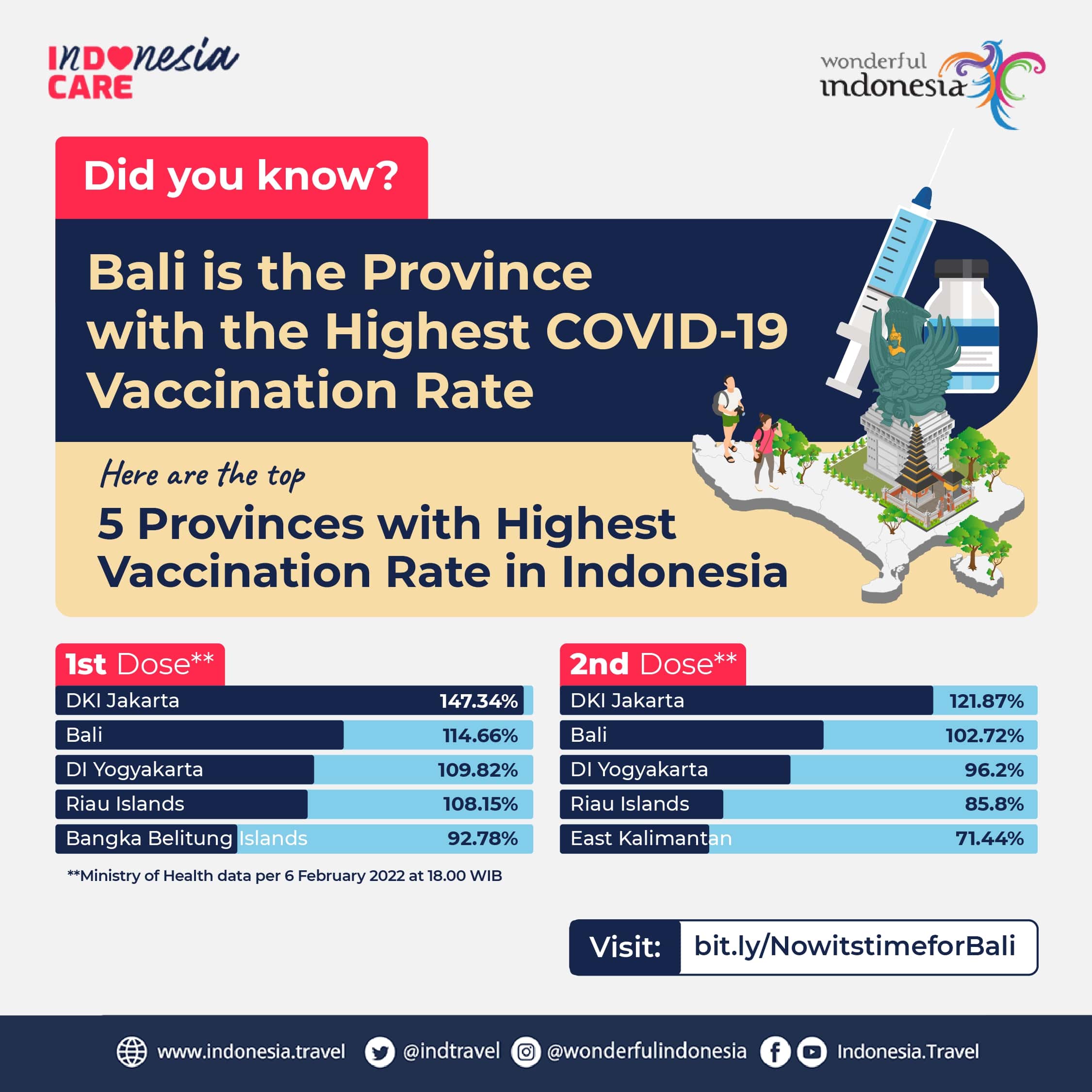
2. Where can I get information about visa regulation?

Complete information about visa regulations and e-visa can be found on the official website and accounts of the Directorate General of Immigration of the Republic of Indonesia. Kindly check here to access the website and find specific information to match your needs.
3. Can tourists go on a holiday in Indonesia yet?
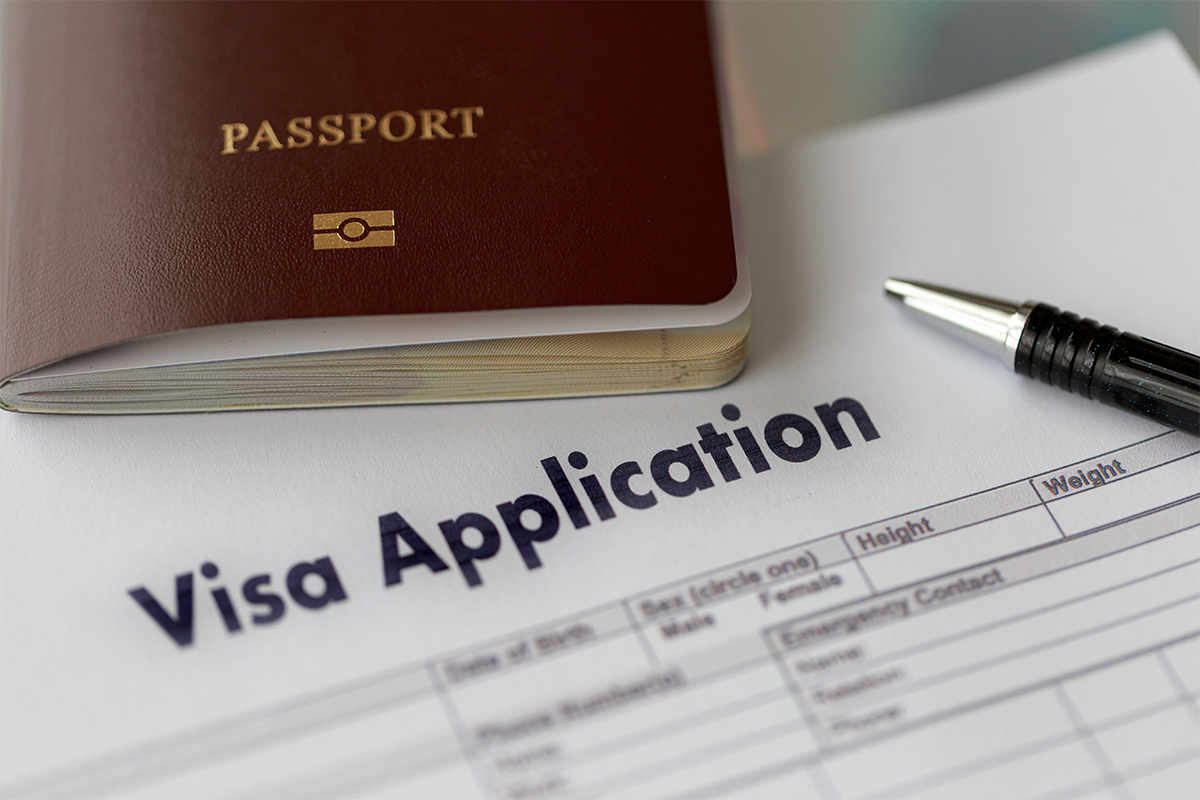
Currently, foreign nationals are allowed to enter Indonesia, as long as they meet the criteria below:
International travelers with Indonesian citizenship (WNI) from abroad are permitted to enter Indonesia by continuing to take part in the strict health protocol implemented by the government.
The temporary entry restriction for foreign nationals to Indonesia, both directly and transit in foreign countries, is excluded for travelers who meet the following criteria:
- In accordance with the provisions in the Regulation of the Minister of Law and Human Rights No. 34 of 2021 on the Granting of Visa and Immigration Stay Permits during the Mitigation of the Spread of Coronavirus Disease 2019 and National Economic Recovery;
- According to the agreement schemes (bilateral), such as travel corridor arrangement (TCA); and/or
- Granted special considerations/permissions in writing from the Ministry/Institution.
You can check out this page to gather more information about the latest international travel regulation.
On 24 January 2022, the Indonesian government also opened the tourist door between the Riau Islands and Singapore (Batam Bintan-Singapore or abbreviated as BB-S) through a travel bubble scheme .
According to the Decree of the Head of COVID-19 Handling Task Force Number 3 of 2022, as of 24 January 2022, all international travelers with travel bubble mechanism are allowed to enter Riau Islands from Singapore under the following conditions:
International travelers going to Batam or Bintan with a travel bubble scheme are Indonesian citizens or foreign nationals who are going to Batam or Bintan with the origins of arrival from Singapore and have been staying in Singapore for at least 14 days.
Through the entry points as follows:
i. Nongsapura International Ferry Terminal for the travel bubble area in Nongsa Sensation in Batam; and
ii. Bandar Bintan Telani Ferry Terminal for the travel bubble area in Lagoi Bintan Resort in Bintan;
Presenting cards or certificates or receipt of COVID-19 vaccine and a negative RT-PCR test result;
Tourist visa or other entry permits according to the regulations applied, with exclusions to international travelers with Singapore citizenship;
Proof of ownership of health insurance with a minimum coverage value of SGD 30,000 which includes financing for handling COVID-19 and medical evacuation towards a referral hospital;
Proof of booking confirmation and payment of travel bubble travel packages in the Lagoi Bintan Resort or Nongsa Sensation area;
You can also visit this page to gather more information about the Batam Bintan-Singapore travel bubble.
As we welcome you to the country again, InDOnesia CAREs for your comfortable return by providing you with CHSE (Cleanliness, Health, Safety, and Environmental Sustainability) protocols; updating regulations based on current conditions; adopting new procedures at airports, harbors, and ground crossings; collaborating with hotels, transportation services, and local guides to adapt with the new era of travel.
4. What are the health requirements and quarantine rules in Indonesia?
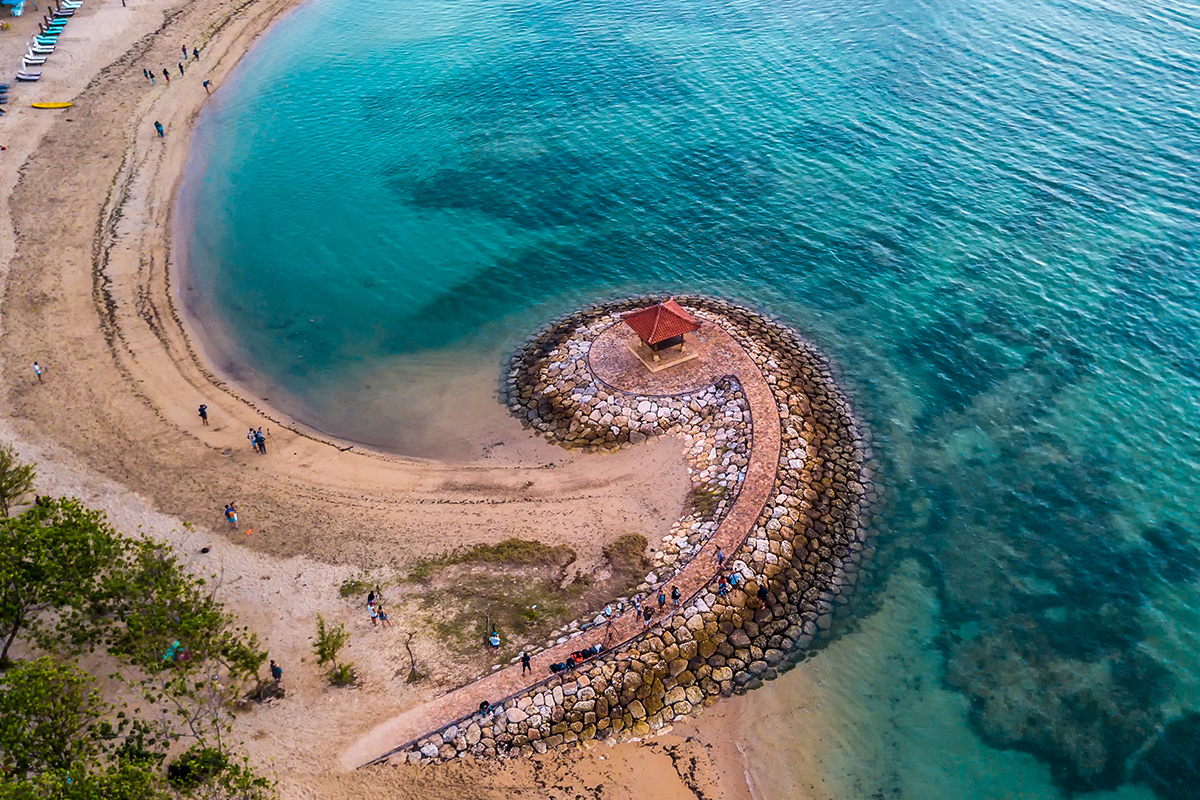
Foreigners are allowed to enter Indonesia after meeting the following health requirements:
1. Show a negative RT-PCR test result in their country of origin, obligated to be done at a maximum of 2 x 24 hours before departure.
2. Download and fill out eHAC Indonesia (Indonesia Health Alert Card) application via smartphone, then show the details to the officer upon arrival. Foreigners can also visit the Indonesia Health Alert Card, Ministry of Health’s website , to fill out the form.
3. Foreigners are required to show a card or certificate (physical or digital) of vaccinations.
According to the Circular of Covid-19 Task Force No. 4 Year 2022 , as of 1 February 2022, foreign nationals must comply with the following quarantine rules to enter Indonesia:
1. Upon arrival, the individual must undergo an RT-PCR test and must undertake a mandatory quarantine
Foreign nationals who have not received the full dose vaccine are required to undergo 7 x 24 hours quarantine.
Foreign nationals who have received the full-dose vaccines are required to undergo 5 x 24 hours quarantine.
2. A second RT-PCR test will be conducted a day before the quarantine period ends.
3. If the test shows a negative result, on the last day of the quarantine, the individual will be declared for completed quarantine. Meanwhile, if the RT-PCR test shows a positive result then the individual will have to undergo the following procedures:
Treatment in centralized isolation facilities for those who are asymptomatic or have mild symptoms.
Treatment at a referral hospital for those who show moderate or severe symptoms.
4. Head of foreign representatives and family members on duty in Indonesia are allowed to quarantine at their respective residences for 7 x 24 or 5 x 24 hours at their respective residence, depending on the dose of vaccine received.
5. Where can I see updated information about Bali?

You can see official updated information about Bali through our Indonesia.travel website and social media platforms. Stay inspired with fantastic activities as you begin your journey in Indonesia.
You can also gather more information about Indonesia's latest travel regulations, by downloading the official arrival guidelines for international travelers to Indonesia right here .
We are ready to welcome you back here. Please keep in mind the CHSE (Cleanliness, Health, Safety, and Environmental Sustainability) protocols when you’re planning to set your foot in Indonesia. Don’t forget to also follow our Instagram @wonderfulindonesia , Twitter @indtravel , Facebook @indonesiatravel , as well as YouTube @indonesiatravel .
*Disclaimer : This article was updated on February 7th, 2022. Due to the dynamic nature of travel regulations, please refer to official websites and links found in this article for the latest updates and developments.
Suggested for you

2 Million Balinese will Receive COVID-19 Vaccination by July 2021

1,861 Tourism Stakeholders in Bali are Targeted to Receive InDOnesia CARE Certification by the End of 2021

Almost 50% of Vaccination Target in Bali Has Received COVID-19 Vaccine

Second Phase of Covid-19 Vaccination in Nusa Dua Has Been 100% Completed

Bali Secured 2.2 Million Doses of Covid-19 Vaccine

Visit our other website
This is the official website of the Ministry of Tourism, Republic of Indonesia. The contents listed on this website are intended for informational purposes rather than commercial. Any displayed sale is meant as a token of partnership and will always redirect you to our partners' sites.
Cookies on GOV.UK
We use some essential cookies to make this website work.
We’d like to set additional cookies to understand how you use GOV.UK, remember your settings and improve government services.
We also use cookies set by other sites to help us deliver content from their services.
You have accepted additional cookies. You can change your cookie settings at any time.
You have rejected additional cookies. You can change your cookie settings at any time.
- Passports, travel and living abroad
- Travel abroad
- Foreign travel advice
Entry requirements
This advice reflects the UK government’s understanding of current rules for people travelling on a full ‘British citizen’ passport from the UK, for the most common types of travel.
The authorities in Indonesia set and enforce entry rules. If you’re not sure how these requirements apply to you, contact Indonesia’s embassy in the UK .
Death from COVID-19 in Indonesia
If COVID-19 is given as cause of death and you would like to arrange a local cremation and repatriation of ashes, you will need to make contact with a local undertaker within 4 hours of the death registration to give your instructions. If you do not do this, it is likely that a local burial will take place.
You will also require a letter of no objection from the Embassy. This will be issued on the next working day.
Passport validity requirements
To enter Indonesia, your passport must have an ‘expiry date’ at least 6 months after the date you arrive and have at least 2 blank pages.
Check with your travel provider or the nearest Indonesian Embassy or Consulate to make sure your passport and other travel documents meet the requirements.

Dual nationality
Indonesian law does not allow dual nationality for those aged 18 and older. If you are a British national who has retained Indonesian nationality, you could have difficulties with immigration in Indonesia. You might have to renounce your nationality or hand in your Indonesian passport.
Visa requirements
You can apply for an e-visa before arrival on the Indonesian immigration website .
Visas on arrival
British nationals who visit Indonesia for the following reasons can also apply for a visa on arrival at a cost of 500,000 Indonesian rupiah:
- official visit or government duties
- business or official meeting
- procurement of goods
The visa is valid for 30 days. It can be extended once (for a maximum of 30 days) by making an application to an immigration office within Indonesia. Make sure you extend your visa within the initial 30 days to avoid an overstay fine of 1 million rupiah a day.
KITAS extension (stay or work permit)
KITAS holders with expiring stay permit but currently outside Indonesia can apply for an extension through a sponsor. The sponsor must submit the application to the immigration office attaching a copy of the passport and proof of leaving Indonesia. The application is submitted without biometric sampling. The sponsor must report the foreigner’s arrival within 30 days.
Beware of visa scams by fake visa agents who, having taken your money, may fail to provide a visa or supply the wrong visa. This could result in your overstaying and a fine of 1 million Indonesia rupiah per day, detention, deportation and possible re-entry ban. Use the Indonesian Immigration self-service portal.
Visa scams are increasing in Indonesia. Some travellers have lost significant amounts of money. Others have been deported despite paying large fees to an agent to get the correct visa or extension.
If you choose to use to use an agent check they are reputable.
Overstaying your visa
Visitors who overstay without the proper permissions can be held in detention or refused permission to leave the country until a fine of 1 million Indonesian rupiah per day is paid.
If you have overstayed your visa for less than 60 days, you must pay your fine at the airport. After 60 days, you will be detained until the fine is paid.
If your visa will expire during a period of hospitalization or detention, contact Indonesian Immigration before your visa expires to avoid any overstay fines. The British Embassy Jakarta can assist with this.
Proof of onward travel
Immigration officials in Indonesia may ask you for proof of onward travel (such as a return or onward air ticket). Make all reservations before leaving for Indonesia. Some airlines have refused to board passengers without evidence of onward travel.
Airport tax
Airport tax is included in the cost of all domestic flights within Indonesia. For some international flights departing Indonesia, airport tax might not be included in the price of the ticket. Check with your airline or travel agent before you travel.
Tourist levy
On 14 February 2024, the Bali Provincial Government will introduce a tourist levy of 150,000 Indonesian rupiah per person (approximately £8) to all foreign tourists arriving in Bali. Payment can be made online or on arrival at designated payment counters at Bali’s airport and seaport. Further information can be found on the Bali Provincial Government’s official website .
Vaccination requirements (other than COVID-19)
At least 8 weeks before your trip, check the vaccinations and vaccination certificates you may need on TravelHealthPro .
Depending on your circumstances, these may include:
- yellow fever
Accommodation
Registering.
If you stay in private accommodation in Indonesia (not a hotel) you must register your presence with the local police at the nearest police station. You could be fined 5 million Indonesia rupiah if you do not register. If you stay in a hotel you will be registered automatically.
Related content
Is this page useful.
- Yes this page is useful
- No this page is not useful
Help us improve GOV.UK
Don’t include personal or financial information like your National Insurance number or credit card details.
To help us improve GOV.UK, we’d like to know more about your visit today. Please fill in this survey (opens in a new tab) .

- What is a visa?
- Electronic Visa (eVisa)
- Visa on Arrival
- Appointment Required Visa
- Invitation Letter
- Arrival Card
- Passport Renewal
- Project Kosmos: Meet the man with the world's most challenging travel schedule
- Australia Visa and ETA requirements for US citizens explained
- Brazil eVisa for US citizens
- India Tourist Visa for UK citizens
- Possible B1/B2 Visa questions during the interview
Select Your Language
- Nederlandse
- 中文 (Zhōngwén), 汉语, 漢語
Select Your Currency
- AED United Arab Emirates Dirham
- AFN Afghan Afghani
- ALL Albanian Lek
- AMD Armenian Dram
- ANG Netherlands Antillean Guilder
- AOA Angolan Kwanza
- ARS Argentine Peso
- AUD Australian Dollar
- AWG Aruban Florin
- AZN Azerbaijani Manat
- BAM Bosnia-Herzegovina Convertible Mark
- BBD Barbadian Dollar
- BDT Bangladeshi Taka
- BGN Bulgarian Lev
- BIF Burundian Franc
- BMD Bermudan Dollar
- BND Brunei Dollar
- BOB Bolivian Boliviano
- BRL Brazilian Real
- BSD Bahamian Dollar
- BWP Botswanan Pula
- BZD Belize Dollar
- CAD Canadian Dollar
- CDF Congolese Franc
- CHF Swiss Franc
- CLP Chilean Peso
- CNY Chinese Yuan
- COP Colombian Peso
- CRC Costa Rican Colón
- CVE Cape Verdean Escudo
- CZK Czech Republic Koruna
- DJF Djiboutian Franc
- DKK Danish Krone
- DOP Dominican Peso
- DZD Algerian Dinar
- EGP Egyptian Pound
- ETB Ethiopian Birr
- FJD Fijian Dollar
- FKP Falkland Islands Pound
- GBP British Pound Sterling
- GEL Georgian Lari
- GIP Gibraltar Pound
- GMD Gambian Dalasi
- GNF Guinean Franc
- GTQ Guatemalan Quetzal
- GYD Guyanaese Dollar
- HKD Hong Kong Dollar
- HNL Honduran Lempira
- HTG Haitian Gourde
- HUF Hungarian Forint
- IDR Indonesian Rupiah
- ILS Israeli New Sheqel
- INR Indian Rupee
- ISK Icelandic Króna
- JMD Jamaican Dollar
- JPY Japanese Yen
- KES Kenyan Shilling
- KGS Kyrgystani Som
- KHR Cambodian Riel
- KMF Comorian Franc
- KRW South Korean Won
- KYD Cayman Islands Dollar
- KZT Kazakhstani Tenge
- LAK Laotian Kip
- LBP Lebanese Pound
- LKR Sri Lankan Rupee
- LRD Liberian Dollar
- LSL Lesotho Loti
- MAD Moroccan Dirham
- MDL Moldovan Leu
- MGA Malagasy Ariary
- MKD Macedonian Denar
- MNT Mongolian Tugrik
- MOP Macanese Pataca
- MUR Mauritian Rupee
- MVR Maldivian Rufiyaa
- MWK Malawian Kwacha
- MXN Mexican Peso
- MYR Malaysian Ringgit
- MZN Mozambican Metical
- NAD Namibian Dollar
- NGN Nigerian Naira
- NIO Nicaraguan Córdoba
- NOK Norwegian Krone
- NPR Nepalese Rupee
- NZD New Zealand Dollar
- OMR Omani Rial
- PAB Panamanian Balboa
- PEN Peruvian Nuevo Sol
- PGK Papua New Guinean Kina
- PHP Philippine Peso
- PKR Pakistani Rupee
- PLN Polish Zloty
- PYG Paraguayan Guarani
- QAR Qatari Rial
- RON Romanian Leu
- RSD Serbian Dinar
- RUB Russian Ruble
- RWF Rwandan Franc
- SAR Saudi Riyal
- SBD Solomon Islands Dollar
- SCR Seychellois Rupee
- SEK Swedish Krona
- SGD Singapore Dollar
- SHP Saint Helena Pound
- SLL Sierra Leonean Leone
- SOS Somali Shilling
- SRD Surinamese Dollar
- SVC Salvadoran Colón
- SZL Swazi Lilangeni
- THB Thai Baht
- TJS Tajikistani Somoni
- TOP Tongan Pa anga
- TRY Turkish Lira
- TTD Trinidad and Tobago Dollar
- TWD New Taiwan Dollar
- TZS Tanzanian Shilling
- UAH Ukrainian Hryvnia
- UGX Ugandan Shilling
- USD United States Dollar
- UYU Uruguayan Peso
- UZS Uzbekistan Som
- VND Vietnamese Dong
- VUV Vanuatu Vatu
- WST Samoan Tala
- XAF CFA Franc BEAC
- XCD East Caribbean Dollar
- XOF CFA Franc BCEAO
- XPF CFP Franc
- YER Yemeni Rial
- ZAR South African Rand
- ZMW Zambian Kwacha
We've updated our app!
Download it now
Online Indonesia Customs Declaration Application: Streamlining Your Arrival Process
1.2M happy customers
24/7 support
+46,000 reviews
10 years of experience
98% visa approval rate
How to Apply: Electronic Customs Declaration
Complete our easy online application
Don't waste time in a queue or filling out forms on the plane or at the airport. We will do it for you
Some nationalities require a visa to enter this country. Check with your local embassy / consulate
Present your passport and the document we provide to save you time and hassle when entering destination
How to Apply: Embassy Registration
Complete our easy online application and pay with credit card or PayPal
Your embassy will assist you if an emergency (eg. Natural disasters, civil unrest, etc) occur
Why Register with the Embassy
Required information to apply.
Once You Have Registered With Your Embassy Or Consulate, You Will Need To Update Your Data If:
- your contact details change,
- your civil status changes,
- you are going back to your home country.
Learn More: Electronic Customs Declaration
What you need to know.
iVisa.com is a legitimate company and is accredited and recognized by the International Air Transport Association (IATA). For more information see the FAQs below.
Please note that the Indonesia Electronic Customs Declaration does not serve as a replacement for a visa.
APPLYING FOR THE INDONESIA ELECTRONIC CUSTOMS DECLARATION
The Indonesia Electronic Customs Declaration with iVisa.com is easy, user-friendly, and only takes a few minutes to complete online .
- Step 1: Choose the document you want to apply for and provide some information about yourself and your trip.
- Step 2: Verify the information you have already provided is correct, choose the processing time, and pay the fees using a credit or debit card.
- Step 3: Attach any required documents and hit ‘Submit’.
You will receive a confirmation email from us containing your completed Indonesia Electronic Customs Declaration ready to show on arrival.
With iVisa.com you can apply for your Indonesia Electronic Customs Declaration online, prior to your arrival in the country. In 3 easy steps, the document will be yours. See below for details on how to apply.
Before continuing, please note that the Indonesia Electronic Customs Declaration does not serve as a substitute for a visa.
Indonesia Electronic Customs Declaration
- Customs Declaration: Before arrival, all passengers, or the head of the family must complete a Customs Declaration. (Only ONE declaration per family is required.)
- Validity : The document is for a Single Entry and it is valid only on entry to Indonesia.
- No. of entries: You can only use this document once when you enter the country.
- CD fees: Acquiring the customs declaration with iVisa.com comes with a processing fee, see FAQs below for more information.
- CD Eligibility: It is mandatory for anyone traveling to Indonesia to fill out this form before arrival.
- Passport requirements: Valid for at least 6 months after date of entry.
If you’re ready to get started on your trip to Indonesia, apply for the Indonesia Electronic Customs Declaration now .
Where can I contact you?
Please do not hesitate to contact our customer service team or contact us on whatsapp if you have any questions.
Related Articles
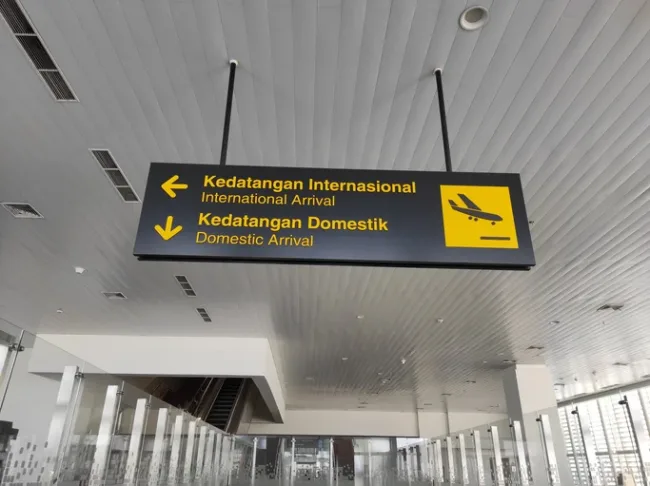
- Indonesia Electronic Customs Form: How to Apply?
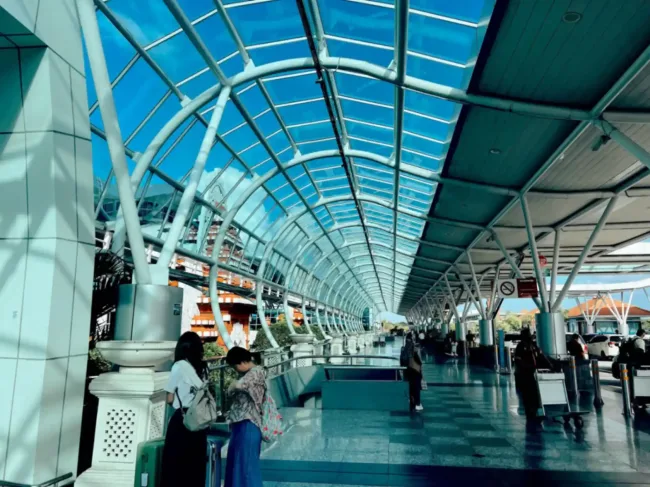
- Flying into Ngurah Rai International Airport (DPS): What you need to know
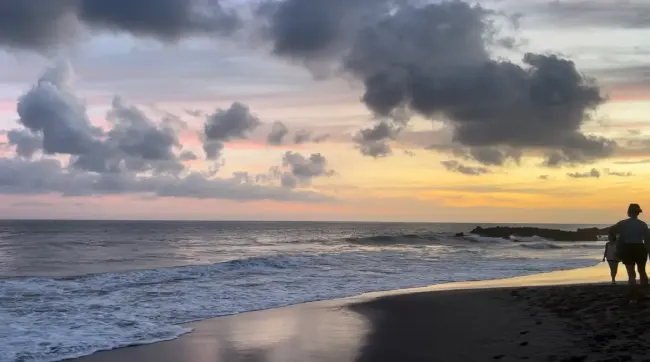
- Traveling to Bali: Useful tips for a hassle-free trip
Is iVisa.com a legitimate company?
Our Company is accredited and recognized by the International Air Transport Association (IATA) and has a validated IATA Agency Code. If you want to check this information you can verify our membership using our bearing No. 23716873 at http://store.iata.org/ieccacfree .
Remember that the customer service team at iVisa.com is here 24/7 to answer any questions you may have about our service.
Do I need a COVID vaccine or vaccination certificate to enter Indonesia?
Yes, Indonesia has been taking steps to restore travel within its borders. In order to enter Indonesia, travelers aged 18 and older need to display the COVID vaccine passport or vaccination certificate.
Accepted vaccines are Pfizer, Moderna, Sinovac, AstraZeneca, Johnson & Johnson, and Sinopharm.
Travelers are considered vaccinated if all doses of a vaccine against SARS-Cov-2 have been administered for at least two weeks before traveling.
Do I need to take a PCR COVID-19 Test before traveling to Indonesia?
- COVID testing requirements: There are no testing requirements.
Do I have to quarantine when I get to Indonesia?
- Quarantine requirements: There are no quarantine requirements.
Check our application page to complete the Indonesia Electronic Customs Declaration.
Why buy a COVID-19 self-testing kit? (US residents only)
The eMed self-test COVID-19 kit includes 6 rapid antigen tests that meet major US airline's entry requirements- perfect for travelers on round-trip journeys from the United States!
Order your test kit before your trip and it will be delivered to your home address for easy testing, anywhere, anytime. The Certified Guide will help you get results in 15 minutes on the NAVICA app. Get the eMed self-test COVID-19 kit for $150- that’s only $25 per test.
Order yours today
What is the Indonesia Electronic Customs Declaration?
What is the cost of the indonesia electronic customs declaration.
- Standard Processing Option: 24 hours - USD $32.49
- Rush Processing Option: 4 hours - USD $59.99
- Super Rush Processing Option: 30 minutes - USD $100.99
Can I get the Indonesia Electronic Customs Declaration for free?
Is it mandatory to get an indonesia electronic customs declaration if i’m traveling to indonesia, when should i apply for the indonesia electronic customs declaration, how long does it take to apply for one, how long is the indonesia electronic customs declaration valid for, how do i get an indonesia electronic customs declaration, who can i talk to if i have more questions, how do processing times work, where can i read more.
- How to get a Bali Visa as an Indian citizen
- Indonesia eVisa for US Citizens (eVoA)
- Indonesia eVisa for Taiwanese Citizens (eVOA)
- Indonesia eVisa for South Korean Citizens (eVOA)
- Indonesia eVisa for Saudi Citizens (eVOA)
- Visa for Indonesia from South Africa (eVoa)
- Indonesia eVisa for Swiss Citizens (eVOA)
Other Available Visas: Indonesia?
- Visa (eVOA)
- Visa (eVOA) Application
- B211A Visa Application
- Tourist Visa
- Tourist Visa Application
INDONESIA AND THE UK
Indonesia and ireland, indonesia and imo, welcome message, about indonesia, functions and attachés, list of indonesian ambassadors, our services, consular services, other services for indonesian, research - film production and journalistic, business with indonesia, explore wonderful indonesia, publications, upcoming events, past events & publications, diaspora communities, student communities, important information.

Related article
Quick links.
- Education Attaché In London
EMBASSY OF THE REPUBLIC OF INDONESIA TO THE UNITED KINGDOM, IRELAND, AND IMO LONDON
Copyright @ 2018 Ministry of Foreign Affairs Republic of Indonesia. All Right Reserved.
Sorry, This Page is Underconstruction

Search Smartraveller

Latest update
Exercise a high degree of caution in Indonesia overall due to security risks.
Higher levels apply in some areas.

Indonesia (PDF 699.19 KB)
Asia (PDF 2.21 MB)
Local emergency contacts
Fire services, ambulance and rescue services, medical emergencies.
Call 110 or 112.
Tourist Police, Bali
Call (+0361) 759 687.
Tourist Police, Jakarta
Call (+201) 526 4073.
Advice levels
Exercise a high degree of caution in Indonesia overall.
Reconsider your need to travel to the provinces of Papua (Papua), Papua Highlands (Papua Pegunungan), Central Papua (Papua Tengah) and South Papua (Papua Selatan).
Reconsider your need to travel to the provinces of Papua, Papua Pegunungan, Papua Tengah and Papua Selatan due to the risk of serious security incidents or demonstrations that may turn violent.
- There's an ongoing risk of terrorist attack in Indonesia. Be alert to possible threats. Take official warnings seriously and follow the advice of local authorities. Popular tourist areas may be the target of terrorist attacks.
- Public protests and events that draw large groups of people occur regularly and can turn violent with little notice. Expect traffic delays and restricted access to locations if there are protests. Avoid protests and demonstrations and monitor local media for the latest updates.
- Many of Indonesia's volcanoes are active and can erupt without warning. Adhere to exclusion zones around volcanoes, which can change at short notice, and follow the advice of local authorities. Domestic and international flights can be disrupted. Monitor Indonesia's Volcano Observatory Notice for the latest volcanic activity (Bahasa Indonesia and English), Global Disaster Alert and Coordination System and the Volcanic Ash Advisory Centre for updates.
- There's been tension, including demonstrations and violence, in certain towns in the provinces of Papua, Papua Pegunungan, Papua Tengah and Papua Selatan in recent years. Armed groups have stated that they're targeting foreigners, including Australians. Our ability to provide consular support in these provinces is limited. Armed groups have shot at aircraft, including commercial planes, in remote airports in Papua Pegunungan and Papua Tengah provinces.
- Petty and violent crime occurs in Indonesia. Opportunistic crime, such as pickpocketing occurs. Drinks may be spiked or mixed with toxic substances. Crimes involving taxis and taxi drivers occur. Solo women are at higher risk. Be alert in taxis, public transport, crowds, bars and nightclubs.
- Legal disputes over real estate are common, including in Bali. Before entering into an agreement or providing financial details, do your research and get legal advice.
- Natural disasters such as severe weather, floods, landslides, earthquakes, volcanic eruptions and tsunamis occur regularly. Weather conditions can change quickly during the wet season (October – April). Regularly check weather reports, monitor media and speak to your travel provider before continuing with planned activities. Follow the advice of local authorities.
- When undertaking adventure activities, ensure that functioning safety equipment is available, that you have travel insurance and that your policy covers you for these activities.
Full travel advice: Safety
- The standard of medical facilities in Indonesia is generally lower than in Australia. Many regional hospitals only provide basic facilities.
- Some medications, including prescription medications, drugs for attention deficit hyperactivity disorder (ADHD), all cannabis-based products including medicinal cannabis, cannabis-based oils and creams, hemp-based products, CBD, THC, hash and edibles, are illegal in Indonesia. Harsh penalties, such as arrest and jail time, can apply even if you have a prescription. Make sure your medication is legal in Indonesia .
- Purchasing prescription medication online or over the counter in Indonesia without an Indonesian prescription is illegal. Ensure you provide a valid prescription from an Indonesian doctor before purchasing prescription medication and confirm that it's accepted by the seller before your purchase.
Full travel advice: Health
- Indonesia has revised its criminal code, which includes penalties for cohabitation and sex outside of marriage. These revisions will not come into force until January 2026.
- Penalties for drug offences include heavy fines, long prison sentences and the death penalty. Police target tourist destinations.
- Some medications are illegal in Indonesia. Harsh penalties can apply even if you have a prescription. It is also illegal to purchase prescription medications online or over the counter without an Indonesian prescription. Ensure you have a valid Indonesian prescription. See ' Health '.
The death penalty exists for some crimes in Indonesia.
- Standards of dress and behaviour are conservative in many parts of Indonesia. Learn about local customs. Take care not to offend.
- Aceh province upholds aspects of sharia law. Sharia law applies to everyone, including travellers. Inform yourself about the laws, and be careful not to offend or break local laws. If in doubt, seek local advice.
Full travel advice: Local laws
- The Bali Provincial Government has introduced a new tourist levy of IDR 150,000 per person to foreign tourists entering Bali. The tourist levy is separate from the e-Visa on Arrival or the Visa on Arrival. Cashless payments can be made online prior to travel or on arrival at designated payment counters at Bali's airport and seaport. See the Bali Provincial Government's official website and FAQs for further information.
- If you're travelling to Indonesia for tourism, official government duties or business meetings, you can apply for an e-Visa on Arrival (e-VOA) online at least 48 hours before your travel to Indonesia. This also applies if you're transiting through Indonesia at international airports, seaports and land crossings. You can get a Visa on Arrival (VOA) at some international airports, seaports or land crossings.
- To apply for the e-VOA or VOA, you must have an ordinary (non-emergency) passport with at least 6 months of validity from the date you plan to enter (we also recommend having at least 6 months of passport validity from the date you plan to leave Indonesia, to avoid any issues for your departure or onward travel) and a return or onward flight booking to another country.
- You may need to apply for a visa in advance to enter Indonesia for purposes not covered by the e-VOA or VOA. Check the latest entry requirements with your travel provider or an Embassy or Consulate of Indonesia before travel. Entry, exit and transit conditions can change at short notice. Monitor media for the latest updates.
- You'll be required to complete an e-customs declaration for arrival. You can complete this within 3 days of departure to Indonesia.
- Travel requirements may change at short notice, including travel to Bali and Jakarta by air, land or sea. Contact your travel provider and monitor media for up-to-date details.
Full travel advice: Travel
Local contacts
- The Consular Services Charter tells you what the Australian Government can and can't do to help when you're overseas.
- For consular help, contact the Australian Embassy, Jakarta , the Australian Consulate-General, Bali , the Australian Consulate-General, Makassar or the Australian Consulate-General, Surabaya .
- To stay up to date with local information, follow the Embassy's social media accounts.
Full travel advice: Local contacts
Full advice
The terrorist threat in Indonesia is ongoing. Attacks could happen anywhere and anytime. This includes places that foreigners visit.
Be alert to possible threats. Take official warnings seriously and follow the advice of local authorities. Remain respectful of religious and local customs.
Indonesian authorities continue to investigate and disrupt terrorist groups in Indonesia, including Bali.
Terrorist attacks are motivated by extreme beliefs. Both local grievances as well as events in other parts of the world could motivate extremists in Indonesia towards violence.
Recent terrorist attacks
In December 2022, an explosion occurred at a police station in Bandung, Jawa Barat, killing 2 and injuring 11.
In March 2021, 2 suicide bombers attacked a church in Makassar, injuring dozens.
In the past, police have said that terrorist suspects remain at large and may seek Western targets.
Indonesian security agencies continue to conduct operations against terrorist groups.
Terrorists in Indonesia may carry out small-scale violent attacks with little or no warning.
Be alert in places of worship, especially during periods of religious significance.
Terrorists have targeted places of worship in:
As well as places of worship, other possible targets by terrorists include:
- Indonesian government facilities, premises and symbols associated with the Indonesian Government
- police stations and checkpoints
- bars, nightclubs, cafes and restaurants
- cinemas and theatres
- shopping centres, public transport and transport hubs
- airports and airlines
- clubs, including sporting clubs
- tourist areas and attractions, tour buses and tour groups
- outdoor recreation events
Supporters have committed additional acts of violence in response to high-profile extremists being detained or killed.
To protect yourself during a terrorist attack:
- leave the area as soon as it's safe
- follow the advice of local authorities
- don't gather in a group after an attack
- don't gather in a group if you're evacuated from a building
Security remains at a high level at:
- the Australian Embassy in Jakarta
- the Consulates-General in Bali, Makassar and Surabaya
More information:
Civil unrest and political tension
Most events are announced before they happen; however, protests may occur with little or no notice.
Protests and events are often held near major government buildings and embassies in Jakarta, including the Australian Embassy.
Protests may also occur at any of Australia's Consulates-General in Surabaya, Bali and Makassar, at government buildings, or the offices of international organisations in Indonesia.
You can expect traffic delays and restricted access to locations if there are protests.
Phone or email ahead for an appointment before going to the Embassy or the Consulates-General (see Local contacts ).
Demonstrations and acts of violence can happen when courts try and sentence extremists.
Conflict between different communities can sometimes occur, including in the provinces of Papua, Papua Pegunungan, Papua Tengah and Papua Selatan. Our ability to provide consular support in these provinces is limited.
Local violence can also be directed at minority groups in other parts of Indonesia, including in Java.
If you're found to endanger security or public order, you may be prosecuted under Indonesia's Immigration laws, which may result in imprisonment or deportation.
To protect yourself from possible violence:
- avoid protests and demonstrations
- monitor local media for the latest security updates
- plan your activities to avoid potential unrest on significant dates
- be prepared to change your travel plans
- Demonstrations and civil unrest
Armed conflict
The provinces of Papua, Papua Pegunungan, Papua Tengah and Papua Selatan experience regular violent clashes involving armed groups, civilians, Indonesian police, and the military. Armed groups have stated that they are targeting foreigners, including Australians. Our ability to provide consular support in these provinces is limited.
Many people have been killed and injured in clashes. This includes members of security forces, armed groups and civilians. Violent attacks have occurred in several areas of these provinces, including in and around Jayapura. There's a risk of more attacks.
On 23 February 2023, a riot broke out in Wamena, Papua Pegunungan, when a crowd attacked Indonesian security personnel following the arrest of two people accused of child kidnapping. 12 civilians and rioters were killed.
Violent attacks have occurred around the Freeport Mine in Papua Tengah.
Armed groups have:
- taken a New Zealand pilot hostage in Paro, Papua Pegunungan
- shot at aircraft, including commercial planes, at Beoga airport in Pupua Tengah province and Nop Goliat Dekai airport in Papua Pegunungan province.
- killed people in attacks, including one Australian
- attacked vehicles using the road between Grasberg and Timika
- killed people in violent attacks in Puncak Jaya District, Papua Tengah
- more attacks are possible and could target infrastructure and national institutions.
A range of crimes, including violent crime, occur in Indonesia. Crimes can happen in popular tourist locations in Bali.
To protect yourself from crime:
- be aware of your surroundings
- be alert in crowds
- understand the potential crime risks
Theft, robbery and bag and phone snatching have occurred. These crimes can sometimes involve violence. Opportunistic crime such as pickpocketing occurs.
Be careful of thieves:
- on motorcycles targeting pedestrians
- in upmarket shopping malls
- in crowded public transport
- at traffic lights targeting people in stopped cars
- at bars and nightclubs
- when entering accommodation, including villas in Bali
Keep bags and valuables out of sight in vehicles.
If you're travelling on foot, walk:
- on footpaths
- away from the curb
- with your bag held away from traffic
Sexual assault
If you're a victim of sexual assault :
- get immediate medical assistance. If you have any doubts about seeking medical assistance after a sexual assault, contact your nearest Australian Embassy or Consulate in Indonesia (see Local contacts ) as quickly as possible.
- make a full statement to local police, in person, so they can conduct a criminal investigation. You may wish to seek consular help before you visit the police station. Contact your nearest Australian Embassy or Consulate (see Local contacts ).
Local police can only investigate a crime after you've left Indonesia if you've reported it.
Your sworn statement, or statements by witnesses, can be used as evidence in criminal court proceedings.
You don't always need to be in Indonesia for trial. Neither do witnesses who live outside of Indonesia.
Counselling support
Should you wish to speak to a counsellor, you can call the 24-hour Consular Emergency Centre on +61 2 6261 3305 or contact your nearest Australian Embassy or Consulate (see Local contacts ). They can connect you to counselling hotlines and services.
- Reducing the risk of sexual assault
Bars and nightclubs
Be alert in bars and nightclubs. Drink-spiking and snatching of valuables may occur if you're not alert.
Drinks may be contaminated with drugs or toxic substances. See Health .
Don't leave your food or drinks unattended.
Never accept drinks, food, gum, cigarettes, vapes or e-cigarettes from people you've just met.
- Partying safely
Credit card and ATM fraud
Credit card, online banking and ATM fraud occurs in Indonesia.
Check your bank statements.
Make sure your bank doesn't block your cards. Tell your bank you'll be visiting Indonesia.
Never let your card out of your sight. This includes when you pay in restaurants.
Shield your PIN from sight.
Some vendors install hidden cameras and use card skimmers.
Don’t click on unknown links in WhatsApp or mobile phone text messages, particularly if your phone is linked to mobile banking.
Use ATMs at controlled and secure places, such as:
- shopping centres
Scams and confidence tricks
Beware of scams and confidence tricks.
Only exchange money at authorised money changers. Authorised money changers can also be found on the Bali Foreign Exchange website . Unauthorised money changers have been known to scam foreign tourists in Bali and elsewhere.
All types of gambling are illegal in Indonesia.
Australians have lost large sums of money in card game scams run by organised gambling gangs, particularly in Bali. See Local laws
Some tourists have been robbed or planted with drugs after taking new acquaintances back to their hotel rooms. In some cases, their drinks were spiked.
Legal disputes over the purchase of real estate are common, including in Bali, involving:
- holiday clubs and resorts
- timeshare schemes
Before entering into an agreement or providing financial details:
- thoroughly research the proposal
- get legal advice and know your rights, especially before you sign any documents
Using taxis
Only use licensed official metered taxis. Crimes involving unregistered taxis include:
- taxis departing before the passenger can take their baggage from the vehicle
- taxi drivers robbing or temporarily holding passengers, including in urban areas
- taxi drivers forcing passengers to withdraw money at ATMs before releasing them
Lone female travellers are at higher risk of crime.
If you're in an incident involving a taxi, leave the taxi and the immediate area if it's safe to do so.
To protect yourself from overcharging and scams:
- only travel in licensed taxis with signage, a "taxi" roof sign and meters working
- ensure the driver's identification card is visible
- book via your phone, on an official taxi company mobile app, from inside an airport, or at stands at major hotels
See Travel .
Cyber security
You may be at risk of cyber-based threats during overseas travel to any country. Digital identity theft is a growing concern. Your devices and personal data can be compromised, especially if you're connecting to Wi-Fi, using or connecting to shared or public computers, or to Bluetooth.
Social media can also be risky in destinations where there are social or political tensions, or laws that may seem unreasonable by Australian standards. Travellers have been arrested for things they have said on social media. Don't comment on local or political events on your social media.
- Cyber security when travelling overseas
Kidnapping occurs across the world with political, ideological and criminal motives. Foreigners, including Australians, have been kidnapped overseas while travelling. Kidnaps can happen anywhere, anytime, including destinations that are typically at lower risk.
On 7 February 2023, a New Zealand pilot was taken hostage by an armed group in Paro, Papua Pegunungan.
The Australian Government's longstanding policy is that it doesn't make payments or concessions to kidnappers.
Adventure activities
Many businesses don't follow safety and maintenance standards. This includes transport and tour operators, water sports providers, hotels, restaurants and shops.
It may affect adventure activities, such as:
- bungee jumping
- scuba diving and snorkelling
- chairlift or gondola rides
In the past, Australians have been seriously injured or died while participating in adventure activities. If you require intensive care medical treatment, emergency surgery or medical evacuation. The Australian Government won't pay for these costs.
If you plan to do an adventure activity :
- check if your travel insurance policy covers it
- ask about safety, search and rescue procedures
- ask about and insist on minimum safety requirements
- always use available safety gear, such as life jackets or seatbelts
- check with your travel provider on vessel capacity limits before embarking on sea, land or air travel
- check weather and ocean conditions, and whether the vessel has had any mechanical issues, on the day and before continuing with water activities or sea travel
- check where the nearest medical facilities are
If proper safety equipment isn't available or you're unsure of the provider's safety or maintenance procedures, use another provider.
Trekking and climbing
Some mountain treks suit only experienced climbers. Travel with a guide and check the level of difficulty beforehand.
Many trekking options may be on or around an active volcano. Many of Indonesia's volcanoes are active and can erupt without warning. Volcanic and seismic activity may continue for some time. Adhere to exclusion zones around volcanoes, which can change at short notice, and follow the advice of local authorities. If you're planning to travel to an area near an active volcano, check with local authorities before climbing and check:
- Bureau of Meteorology Volcanic Ash Advisory Centre
- MAGMA Indonesia (Bahasa Indonesia) for daily updates on status and alert levels
- National Disaster Management Authority (BNPB) (Bahasa Indonesia)
- Global Disaster Alert and Coordination System
Swimming safety
People have drowned in coastal areas, including in Bali, due to rough seas, strong currents, or from swimming, snorkelling or scuba diving in areas where there is frequent passage of boats, resulting in collisions.
Local beach rescue services may not be of the same standard as in Australia.
Saltwater crocodiles are in rivers throughout Indonesia. Avoid swimming around river estuaries and seek local advice in other locations.
If you plan to spend time in or on the water:
- regularly check weather reports as sea conditions can change rapidly
- take warnings seriously
- check media and local sources for information about potential dangers
- speak to your travel provider about safety equipment and weather conditions before continuing with planned activities
- take a friend or family member with you when you undertake swimming or water activities
- be careful when swimming, snorkelling or scuba diving near motor-powered boats or where there is frequent passage of boats
- ensure you have travel insurance and that your policy covers you for planned activities
Ensure you have travel insurance and that your policy covers you for planned activities.
Climate and natural disasters
Indonesia experiences natural disasters and severe weather , including:
- landslides and mudslides
- volcanic eruptions
- earthquakes
- storms resulting in turbulent sea conditions
- tsunamis and high wave events
If there's a natural disaster or severe weather:
- always carry your passport in a waterproof bag
- keep in contact with family and friends
- check the media and local sources for information
- don't undertake sea, land or air travel if it's not safe to do so
- Indonesian Meteorology, Climatology and Geophysics Agency (BMKG) (English and Bahasa Indonesia)
- BMKG Multi-Hazard Early Warning System app (English and Bahasa Indonesia)
Floods and mudslides
Floods , landslides and mudslides occur regularly during the wet season from October to April, with some severe events resulting in injury, displacement, death or damaged infrastructure.
Heavy rains can cause significant flooding in urban areas, including the greater Jakarta region, causing disruption to transportation. Monitor the local media for updates.
Walking and driving in flooded areas can be dangerous. Flood waters may hide uncovered drainage ditches.
Volcanic activity may escalate with little or no notice, leading to flight disruptions and airport closures, including in surrounding provinces. Contact your airline for the latest flight information.
There are 147 volcanoes in Indonesia. 76 of them are active volcanoes and could erupt at any time.
Volcanic alert levels and exclusion zones may rise quickly. You may be ordered to evacuate at short notice. Volcanic activity can disrupt domestic and international flights. There are 4 volcano alert levels in Indonesia; 1 - normal, 2 - advisory, 3 - watch, 4 - warning.
Before you travel to areas that are prone to volcanic activity, monitor media and ensure you read the Indonesian Government's latest advice on current volcanic activity, including:
- Volcanic Activity Report by Indonesia's Multiplatform Application for Geohazard Mitigation and Assessment (MAGMA) (Bahasa Indonesia)
- Volcano Activity and Observatory Notices (English and Bahasa Indonesia)
- MAGMA Indonesia Map of Latest Volcano Levels and Climate Information (Bahasa Indonesia)
- Bureau of Meteorology's Volcanic Ash Advisory Centre
If there's volcanic activity:
- avoid the area
- take official warnings seriously and adhere to exclusion zones
- follow the instructions and advice of local authorities
- follow evacuation orders
- read our advice on Volcanic eruptions while travelling
Volcanic ash can cause breathing difficulties. The risk is higher for people with chronic respiratory illnesses, including:
Recent and frequent volcanic activity has included:
- Mount Ile Lewetolok in East Nusa Tenggara (Nusa Tenggara Timur)
- Mount Lewotobi Laki Laki in East Flores Regency, Nusa Tenggara Timur
- Mount Marapi in West Sumatra
- Mount Anak Krakatau, to the south of Sumatra
- Mount Merapi, near Yogyakarta
- Mt Dukono in North Sulawesi
- Mount Semeru, near Malang, East Java
- Mount Agung in Bali
- Mount Sinabung in North Sumatra
Some trekking routes are on or near active volcanoes, including Mount Agung and Mount Batur in Bali, Mount Marapi in West Sumatra, Mount Merapi near Yogyakarta, Mount Rinjani in Lombok, Mount Bromo and Mount Ijen in East Java. See 'Trekking and climbing'.
If you're planning to travel to an area near an active volcano, make sure you have comprehensive travel insurance and check if any restrictions apply.
If a volcanic eruption occurs:
- make a backup plan in case you're affected
- contact your airline or travel insurer to confirm flight schedules and get help
- keep in touch with family and friends
- Learn more about volcanic eruptions (Geoscience Australia)
- See practical advice and information about volcanic eruptions (US CDC)
- See worldwide volcanic activity reports in real-time (GDACS)
Earthquakes
Indonesia is in an active earthquake region. It has a high level of earthquake activity, that sometimes triggers tsunamis.
There are approximately 4,000 earthquakes across Indonesia every year. Around 70 to 100 of these are over 5.5 magnitude.
Earthquakes can cause death, injury and significant damage to infrastructure.
Strong earthquakes can occur anywhere in Indonesia. They are less common in Kalimantan and south-west Sulawesi.
To stay safe during an earthquake:
- know the emergency plans at your accommodation
- take precautions to avoid exposure to debris and hazardous materials, including asbestos
- MAGMA Indonesia (Bahasa Indonesia)
- Indonesia's Meteorology, Climatology and Geophysics Agency (Bahasa Indonesia) or BMKG Multi-Hazard Early Warning System app (English and Indonesia)
- Indonesia's Centre for Volcanology and Geological Disaster Mitigation (Bahasa Indonesia)
- US Federal Emergency Management Agency advice on what to do before, during and after an earthquake (English)
Forest fires and smoke haze
During the dry season in April to November, widespread forest fires can cause smoke haze resulting in poor air quality across parts of Indonesia, particularly the Riau Islands, central Sumatra and Kalimantan.
Smoke haze could affect your health and travel plans.
Keep up to date with local information and seek medical advice on appropriate precautions.
- ASEAN Regional Haze Situation
- Smartraveller advice on Bushfires
Tsunamis and high wave events
The Indian and Pacific Oceans experience more frequent, large and destructive tsunamis than other parts of the world.
There are many large earthquakes along major tectonic plate boundaries and ocean trenches.
High wave events can happen throughout coastal regions and between islands. They're caused by strong weather conditions and storms.
If you plan to surf, undertake water activities or travel by sea, check local conditions regularly.
If there’s a tsunami or high wave event:
- don't travel by sea if it's not safe to do so
- Indonesia Tsunami Early Warning Centre issues warnings when a potential tsunami with significant impact is expected
- Indonesia's Meteorology, Climatology and Geophysics Agency with the latest list of earthquakes with a magnitude greater than 5.0 on the Richter scale (Bahasa Indonesia) or BMKG Multi-Hazard Early Warning System app (English and Bahasa Indonesia)
- US Federal Emergency Management Agency page on what to do before, during and after an earthquake
Piracy occurs in the coastal areas of Indonesia.
The International Maritime Bureau (IMB) issues weekly piracy reports.
If you decide to travel by boat in these regions:
- check IMB piracy reports
- get local advice
- arrange security measures
- Travelling by boat
- Going on a cruise
- International Maritime Bureau
Travel insurance
Get comprehensive travel insurance before you leave.
Your policy needs to cover all overseas medical costs, including emergency treatment and medical evacuation. The Australian Government won't pay for these costs.
If you can't afford travel insurance, you can't afford to travel. This applies to everyone, no matter how healthy and fit you are.
If you're not insured, you may have to pay many thousands of dollars up-front for medical care.
Before you travel, confirm:
- what activities and care your policy covers
- that your insurance covers you for the whole time you'll be away, including on all forms of transport you plan to take
- whether it covers medical evacuation in the event of hospitalisation or injury
- any exclusions to your policy
Physical and mental health
Consider your physical and mental health before you travel, especially if you have an existing medical condition.
See your doctor or travel clinic to:
- have a basic health check-up
- ask if your travel plans may affect your health
- plan any vaccinations you need
Do this at least 8 weeks before you leave.
If you have immediate concerns for your welfare or the welfare of another Australian, call the 24-hour Consular Emergency Centre on +61 2 6261 3305 or contact your nearest Australian Embassy, High Commission or Consulate to discuss counselling hotlines and services available in your location.
- General health advice
- Healthy holiday tips (Healthdirect Australia)
Not all medication available over the counter or by prescription in Australia is available in other countries. Some may even be considered illegal or a controlled substance, even if prescribed by an Australian doctor.
Some drugs used to treat attention deficit hyperactivity disorder (ADHD) are illegal in Indonesia.
If you plan to bring over-the-counter or prescription medication, check if it's legal in Indonesia by contacting the Indonesian Embassy in Canberra well in advance of your planned travel. Take enough legal medicine for your trip and carry it in its original packaging. Purchasing prescription medication online in Indonesia without an Indonesian prescription is illegal. Ensure you provide a valid prescription from an Indonesian doctor before purchasing prescription medication and confirm that it's accepted by the seller prior to your purchase.
Carry a copy of your prescription and a letter from your doctor stating:
- what the medicine is
- your required dosage
- that it's for medical treatment or use
If you're caught with illegal medicine, you could face detention, fines or harsher penalties. You could face charges even if an Australian doctor prescribed the medication.
Ask the Indonesian Embassy in Canberra for advice before you travel.
Medicinal cannabis and cannabis-based products
Cannabis-based products such as cannabis oil and creams, hemp, CBD, THC, hash and edibles remain illegal in Indonesia, including for medicinal purposes. A medical prescription does not make it legal. If you take such products to Indonesia or purchase or use them in Indonesia, you can be arrested and face imprisonment, fines, deportation or the death penalty.
- Medications
Health Risks
Critical care for Australians who become seriously ill, including in Bali, is significantly below the standard available in Australia. Medical evacuation may not be possible.
The Australian Government cannot guarantee your access to hospitals and other health services in Indonesia.
Medical evacuation to Australia for medical conditions, is possible but is very expensive and may not be covered by travel insurance. Check your policy before you travel.
Ban on sale of liquid/syrup medication
The Indonesian Ministry of Health (MoH) has advised local health workers and pharmacists to stop selling liquid/syrup medication, including commonly used medications containing paracetamol and cough syrups. MoH and the Indonesian Paediatrician Association (IDAI) received reports of a sharp increase in cases of Atypical Progressive Acute Kidney Injury (AKI) in children , especially under the age of 5 years.
Insect-borne illnesses
Insect-borne illnesses are common throughout the year.
To protect yourself from disease:
- research your destination
- ask locals for advice
- make sure your accommodation is mosquito-proof
- use insect repellent
- wear long, loose, light-coloured clothing
Dengue occurs throughout Indonesia, including Bali, Jakarta and other major cities.
Dengue is common during the rainy season.
Australian health authorities have reported an increase in dengue infections in people returning from Bali in recent years.
Consult your travel doctor for further information on available vaccines and their suitability for your individual circumstances.
Zika virus can occur in Indonesia.
Protect yourself from mosquito bites.
The Australian Department of Health and Aged Care advises pregnant women to:
- discuss any travel plans with their doctor
- consider deferring non-essential travel to affected areas
Malaria , including chloroquine-resistant strains, is widespread in rural areas, particularly in the provinces of Papua, Papua Pegunungan, Papua Tengah, Papua Selatan, Papua Barat Daya, Papua Barat, Maluku and Nusa Tenggara Timur. There is no malaria transmission in Jakarta.
- Consider taking medicine to prevent malaria.
Japanese encephalitis and filariasis
Japanese encephalitis and filariasis occur in Indonesia, especially in rural agricultural areas.
Japanese encephalitis has been present in Australian travellers returning from Indonesia, including Bali.
Vaccination is recommended for certain groups of travellers.
- Infectious diseases
Drink poisoning
People have been poisoned by alcoholic drinks contaminated with harmful substances, including methanol and arak (a traditional rice-based spirit). Locals and foreigners, including Australians, have died or become seriously ill from poisoned drinks.
Cases of drink poisoning have been reported in Bali and Lombok.
Contaminated drinks have included:
- local spirits
- spirit-based drinks, such as cocktails
- brand name alcohol
To protect yourself from drink poisoning:
- consider the risks when drinking alcoholic beverages
- be careful drinking cocktails and drinks made with spirits
- drink only at reputable licensed premises
- avoid home-made alcoholic drinks
Labels on bottles aren't always accurate.
Symptoms of methanol poisoning can be similar to drinking too much. However, they are usually stronger.
Symptoms of methanol poisoning include:
- vision problems
Vision problems may include:
- blindness, blurred or snowfield vision
- changes in colour perception
- difficulty looking at bright lights
- dilated pupils
- flashes of light
- tunnel vision
If you suspect that you or someone you're travelling with may have been poisoned, act quickly. Urgent medical attention could save your life or save you from permanent disability.
Report suspected cases of methanol poisoning to the Indonesian police.
Magic mushrooms
Don't consume magic mushrooms. They're illegal.
Australians have become sick or injured after taking magic mushrooms.
Australians have been in trouble with local police after taking magic mushrooms, particularly in Bali.
Magic mushrooms can cause major health problems, including:
- erratic behaviour
- severe hallucinations
Rabies is a risk throughout Indonesia, especially in:
- Nusa Tenggara Timur, including Labuan Bajo
- South Sulawesi
- West Kalimantan
- Nias, off the west coast of Sumatra
To protect yourself from rabies:
- avoid direct contact with dogs
- don't feed or pat animals
- avoid contact with other animals, including bats and monkeys.
Talk to your doctor about getting a pre-exposure rabies vaccination.
If bitten or scratched by an animal:
- immediately use soap and water to wash the wound thoroughly for 15 minutes
- seek urgent medical attention.
Rabies treatment in Indonesia may be limited, including the rabies vaccine and immunoglobulin availability. If you're bitten, you may need to return to Australia or travel to another country for immediate treatment.
You're at risk of contracting rabies if you visit a market where live animals and fresh food are sold because:
- live rabies-positive dogs may be present
- rabies-positive dog meat may be sold as food
Selling dog meat for human consumption is a breach of government disease control regulations.
Avoid contact with monkeys, even in places where you're encouraged to interact with them. This includes:
- popular markets
- tourist destinations
- sanctuaries
Legionnaires' disease
Cases of Legionnaires' disease have been reported in people who have travelled to Bali. Travellers who are unwell with flu-like symptoms within 10 days of returning from Bali are advised to consult their GPs.
- Legionnaires' disease warning for Bali travellers (Western Australian Government Department of Health)
- Legionnaires’ disease (Better Health Channel, Victorian Government Department of Health)
- Legionnaires' disease (World Health Organization)
Cases of poliovirus (type 1) have been reported in the provinces of Papua, Papua Pegunungan, Papua Tengah and Papua Selatan. Poliovirus (type 2) cases have been reported in the provinces of Aceh, East, West and Central Java. There may be unreported cases in other provinces in Indonesia.
Ensure that you're vaccinated against polio.
- Factsheet on poliovirus types (World Health Organization)
- Health emergencies information for Indonesia (World Health Organization)
Periodic outbreaks of measles continue to be reported in Indonesia, including Bali.
You need 2 doses of vaccine 4 weeks apart to be fully vaccinated against measles.
If you have symptoms of measles, seek medical attention.
Measles is highly infectious. Call before attending a healthcare facility.
Nipah Virus and Yellow Fever
There are no cases of Nipah virus or Yellow Fever in Indonesia. You may be temperature checked on arrival at international and domestic airports. If you have fever symptoms, you may be referred to the airport clinic for further tests and asked to seek medical treatment. See your doctor or travel clinic before you travel to plan any vaccinations you need.
HIV/AIDS is a risk for travellers. Take steps to reduce your risk of exposure to the virus.
Other health risks
Waterborne, foodborne, parasitic and other infectious diseases are widespread. These include:
- tuberculosis
Serious outbreaks sometimes occur.
To protect yourself from illness:
- boil drinking water or drink bottled water
- avoid ice cubes
- avoid raw food, such as salads
To minimise the risk of food poisoning, only eat meat from reputable suppliers.
Seek urgent medical attention if you suspect food poisoning or have a fever or diarrhoea.
Seafood toxins
You can become sick from naturally occurring seafood toxins, including:
- ciguatera fish poisoning
- scombroid (histamine fish poisoning)
- toxins in shellfish
Avoid temporary black henna tattoos. The dye often causes serious skin reactions.
Before you get any tattoo, check the hygiene and safety of your tattoo provider.
Medical care
Medical facilities.
The standard of medical facilities in Indonesia is generally lower than Australia. Many regional hospitals only provide basic facilities.
Hospitals expect families to provide support to patients, including all financial support.
Psychiatric and psychological services are limited in Indonesia. Hospital staff may use physical restraints on patients.
When diving in Indonesia, there is a risk that you may experience decompression illness. An illness may occur when a diver ascends to the water surface too quickly and may have severe consequences. Understand the risks before you dive.
Decompression chambers are available in various areas, including the following locations:
- Bali's Sanglah General Hospital
- Siloam Hospital in Labuan Bajo
- Hospitals in Jakarta, Balikpapan, Bintan, Medan, Makassar, Raja Ampat (Waisai), Maluku, Tual and Manado near popular dive sites
Before admitting patients, hospitals usually need:
- guarantee of payment from the patient or their next of kin (family or friend)
- confirmation of medical insurance
- deposit payment
There's no reciprocal healthcare agreement between Australia and Indonesia.
The Australian Government cannot provide guarantee of payment, confirmation of medical insurance or a deposit payment for services.
If you become seriously ill or injured, you may need to be evacuated to a place with better care. Medical evacuation can be very expensive. Check your insurance policy before you travel. The Australian Government won't pay for these costs. It's best to check with your travel provider on the location and functionality of decompression chambers and other medical facilities available in the area before undertaking remote travel.
You're subject to all local laws and penalties, including those that may appear harsh by Australian standards. Research local laws before travelling.
Indonesian Parliament has passed revisions to its criminal code, which includes penalties for cohabitation and sex outside of marriage. These revisions will not come into force until January 2026.
Indonesia has signed into law revisions to the Electronic and Information Transactions Law (ITE Law). Tough penalties apply for defamation, hate speech, spreading hoaxes and uploading immoral content to the Internet. The law applies both within and outside Indonesia.
If you're arrested or jailed, the Australian Government will do what it can to help you under our Consular Services Charter . But we can't get you out of trouble or out of jail.
- Arrested or jailed
Penalties for drug offences are severe. They include the death penalty.
You may face heavy fines or jail for consuming or possessing even small amounts of drugs, including marijuana. Cannabis-based products such as cannabis oil and cream, hemp, CBD, THC, hash and edibles remain illegal in Indonesia, including for medicinal purposes. A medical prescription does not make it legal. If you take such products to Indonesia or purchase or use them in Indonesia, you can be arrested and face imprisonment, fines, deportation or the death penalty.
Some prescription medications that are available in Australia are illegal in Indonesia. Purchasing prescription medication online or over the counter in Indonesia without an Indonesian prescription is illegal. Ensure you provide a valid prescription from an Indonesian doctor before purchasing prescription medication and confirm that it's accepted by the seller before your purchase.
Magic mushrooms are illegal. Indonesian police work to prevent their distribution.
Police target illegal drug use and possession across Indonesia. Police often target popular places and venues in Bali, Lombok and Jakarta.
- Carrying or using drugs
Local labour laws can change at short notice. This can affect expatriate workers.
Under Indonesian law, you must always carry identification. For example, your:
- Australian passport; and
- Resident's Stay Permit (if applicable)
Gambling is illegal.
Property laws are strict, seek legal advice before acquiring property in Indonesia.
It's sometimes illegal to take photographs in Indonesia. Obey signs banning photography. If in doubt, get advice from local officials. See Safety .
Australian laws
Some Australian criminal laws still apply when you're overseas. If you break these laws, you may face prosecution in Australia.
- Staying within the law and respecting customs
Local customs
Standards of dress and behaviour are conservative in many parts of Indonesia. Take care not to offend.
Find out what customs apply at your destination.
If in doubt, seek local advice.
LGBTQIA+ information
Same-sex relationships are legal in Indonesia, except in the province of Aceh. Same-sex relationships in Aceh may attract corporal punishment. Visible displays of same sex relationships could draw unwanted attention.
Some laws and regulations can be applied in a way that discriminates against the LGBTI community, including for pornography and prostitution.
- Advice for LGBTI travellers
The Islamic holiday month of Ramadan is observed in Indonesia. Respect religious and cultural customs and laws at this time.
During Ramadan, eating, drinking and smoking may be illegal in public during this time. If you're not fasting, avoid these activities around people who are. Seek local advice to avoid offence and follow the advice of local authorities.
Explore our Ramadan page to learn more, including dates for Ramadan.
Aceh is governed as a special territory, not a province, and has a degree of special autonomy.
Some aspects of sharia law are upheld. This includes regulations and punishments that don't apply in other parts of Indonesia.
Local sharia police enforce sharia law.
Sharia law applies to anyone in Aceh, including:
- foreigners (expats and travellers)
- non-Muslims
Sharia law doesn't allow:
- drinking alcohol
- prostitution
- same-sex relationships
- extra-marital sex
- co-habitation before marriage
It also requires a conservative standard of dress.
Learn about the laws in Aceh. If in doubt, seek local advice.
Dual citizenship
Indonesia doesn't allow dual nationality for adults, and you may be prosecuted by Immigration authorities should you be found to hold valid passports of two nationalities. If you entered Indonesia on your non-Australian citizenship passport, Indonesian Immigration will require you to exit Indonesia on that nationality's passport.
A child of Indonesian and Australian parents can maintain citizenship of both countries until the age of 18 years. Before a dual Australian-Indonesian citizen minor travels from Indonesia, additional identity documentation may be required from Indonesian Immigration. Check with Indonesian Immigration or the Indonesian Embassy in Canberra well in advance of your planned travel.
- Embassy and Consulate of Indonesia
- Information on limited dual citizenship
- Dual nationals
Visas and border measures
Every country or territory decides who can enter or leave through its borders. For specific information about the evidence you'll need to enter a foreign destination, check with the nearest embassy, consulate or immigration department of the destination you're entering.
Bali Tourism Levy
The Bali Provincial Government has introduced a new tourist levy of IDR 150,000 per person to foreign tourists entering Bali. The tourist levy is separate from the e-Visa on Arrival or the Visa on Arrival. Cashless payments can be made online prior to travel or on arrival at designated payment counters at Bali's airport and seaport. Exemption from payment of the levy applies to transit passengers and certain visa holders. See the Bali Provincial Government's official website and FAQs for further information.
e-Visa on Arrival and Visa on Arrival
You can apply for an e-Visa on Arrival (e-VOA) no later than 48 hours prior to travelling to Indonesia if you are travelling for tourism, business meetings, purchasing goods or transiting only. Check the e-VOA requirements from Indonesian Immigration before applying.
You can still apply for a regular Visa on Arrival (VOA) at certain international airports, seaports and land crossings, including Jakarta, Bali, Surabaya, Makassar, Lombok, Batam, Medan, Manado, Aceh, Padang, Tanjung Pinang and Yogyakarta, if you do not apply for an e-VOA at least 48 hours in advance of your travel to Indonesia.
The e-VOA or VOA can be used for tourism, official government duties, business meetings, or to transit through Indonesia. You cannot transit in Indonesia without an e-VOA or VOA.
Additional requirements apply if you are travelling on government duties.
For the latest list of entry points for the e-VOA or VOA, refer to the Directorate General of Immigration's list of land border crossings, international airports, and international seaports .
The e-VOA and VOA cost IDR 500,000 (approximately $A 50), with the e-VOA charging a small online processing fee.
For the VOA, some airports, including Jakarta's international airport, are only accepting cash payment. Card payment facilities are available at Bali's international airport. ATM facilities may be in high demand. Be prepared to pay in cash if required.
The visa is valid for a 30 day stay and can be extended once (for a maximum of 30 days) by applying at an immigration office within Indonesia. Ensure you extend your visa within the initial 30 days to avoid an overstay fine and deportation.
To apply for a regular VOA, you must show:
- your ordinary (non-emergency) passport with at least 6 months of validity from the date you plan to enter (we also recommend having at least 6 months passport validity from the date you plan to leave Indonesia, to avoid any issues for your departure or onward travel)
- a return flight booking to Australia or onward flight booking to another country
Contact your travel agent, airline, or your nearest Embassy or Consulate of Indonesia for details.
Other visas
If you're entering Indonesia from a port or airport that does not issue a visa on arrival, or you're visiting Indonesia for a purpose not allowed under the e-VOA or VOA conditions, you must apply for a visa in advance of travel. Check the Indonesian Immigration website for further information, or contact your nearest Embassy or Consulate of Indonesia .
Overstaying your permit may result in fines, detention and/or deportation.
- check your visa and permit, and contact the Directorate General of Immigration (DGI) for advice specific to your needs
- if you use an agent to extend your visa or stay permit, use only reputable companies
- if you have specific enquiries on visas or stay permits, contact DGI's Customer Service team via WhatsApp on +62 821 1295 3298
Entry and exit conditions can change at short notice. Contact the nearest Embassy or Consulate for details about visas, currency, customs and entry rules.
You can't work or conduct research in Indonesia unless you have the appropriate visa. Fines of IDR1,000,000 (approx. $A 100) per day apply for the maximum 60 day overstay period.
If you breach Indonesian immigration regulations, you may face:
- deportation
- re-entry bans
You may not be allowed to enter Indonesia if you have a criminal record. This is regardless of how long ago the offence took place. If you're concerned, contact an Embassy or Consulate of Indonesia before you travel.
Indonesian Immigration and visa decisions are final. The Australian Government can't help you.
- Embassy or Consulate of Indonesia
Border measures
You'll be required to complete an e-customs declaration for arrival . You can complete this within 3 days of departure to Indonesia.
Check entry requirements with your travel provider or the nearest Embassy or Consulate of Indonesia before you travel.
You may be temperature checked on arrival at international and domestic airports. If you have fever symptoms, you may be referred to the airport clinic for further tests and asked to seek medical treatment. See your doctor or travel clinic before you travel to plan any vaccinations you need.
Departure from Indonesia
Indonesia, including Bali, currently has an outbreak of foot-and-mouth disease affecting animals. In preparing to travel to Australia, read Smartraveller's advice on biosecurity and border controls . Measures include cleaning dirty shoes, clothing or equipment before boarding your flight to Australia and not packing meat or dairy products. On your Incoming Passenger Declaration, you must declare any meat, dairy or animal products and any of your travel in rural areas or near animals (e.g., farms, zoos, markets).
Other formalities
If you're staying in a private residence, not a hotel, register when you arrive with both:
- the local Rukun Tetangga Office
- local police
If you plan to be in Indonesia for more than 30 days:
- register with the local immigration office
- make sure you have the right visa
- Embassy of Indonesia in Canberra
Indonesia won't let you enter unless your passport is valid for 6 months after you plan to leave Indonesia. This can apply even if you're just transiting or stopping over. You can end up stranded or returned back to your previous port overseas at your own cost, if your passport is not valid for more than 6 months from the date you enter and the date you plan to leave Indonesia.
Indonesia does not accept entry with an emergency passport, even if it is valid for more than 6 months. Ensure you enter Indonesia on a valid ordinary, official, or diplomatic passport.
Some foreign governments and airlines apply these rules inconsistently. Travellers can receive conflicting advice from different sources.
The Australian Government does not set these rules. Check your passport's expiry date before you travel. If you're not sure it'll be valid for long enough, consider getting a new passport .
Lost or stolen passport
Your passport is a valuable document. It's attractive to people who may try to use your identity to commit crimes.
Some people may try to trick you into giving them your passport. Always keep it in a safe place.
If your passport is lost or stolen, tell the Australian Government as soon as possible:
- In Australia, contact the Australian Passport Information Service .
- If you're overseas, contact the nearest Australian Embassy, Consulate or High Commission.
Damaged Passports
Indonesian authorities have strict standards for damaged passports, and travellers have been refused entry into Indonesia with a damaged passport. Normal wear and tear, including water damage, minor tears or rips to the pages, can be considered damaged.
It's important that:
- there are no tears or cuts in the passport pages, especially the photo page
- everything on the photo page is legible and clear
- there are no marks across your photo or in the Machine Readable Zone (MRZ) on the photo page
- no pages have been removed
- there is no alteration or tampering
If you're not sure about the condition of your passport, call the Australian Passport Office on 131 232 or contact your nearest Australian embassy or consulate overseas . We may need to see your passport to assess it.
- Passport Services
- Damaged and faulty passports
- Using and protecting your passport
Passport with ‘X’ gender identifier
Although Australian passports comply with international standards for sex and gender, we can’t guarantee that a passport showing 'X' in the sex field will be accepted for entry or transit by another country. Contact the nearest embassy, high commission or consulate of your destination before you arrive at the border to confirm if authorities will accept passports with 'X' gender markers.
More information:
- LGBTQIA+ travellers
The local currency is the Indonesian Rupiah (IDR).
Declare cash in excess of IDR100,000,000 or equivalent when you arrive and leave. This covers all forms of currency, not only cash.
IDR100,000,000 is worth about $A10,000.
Local travel
Travel permits.
You may need a travel permit or Surat Keterangan Jalan to travel to some areas of the Papua provinces.
Check if you need a permit with the nearest Embassy or Consulate of Indonesia or with your travel provider.
Mobile Phone Reception and Wi-Fi
Mobile phone reception and Wi-Fi are not always available, including in remote areas and some resort islands.
If you plan to stay in Indonesia for more than 90 days and would like to use your mobile phone purchased overseas, you'll need to register your mobile phone IMEI number with Indonesian Customs within the first 60 days of your stay.
If you plan to stay in Indonesia for less than 90 days, you can visit the local cellular operator/provider booth at the airport to get an access period to use the Indonesian cellular network, which is only valid for 90 days and includes data roaming.
A customs payment may be required, or a tourist SIM card can be purchased for short-term stays. You can use Wi-Fi networks without registration.
To stay in communication and avoid mobile service interruptions:
- check mobile coverage with your service provider
- register your mobile device with Indonesian Customs on arrival if you plan to connect to the mobile network
Driving permit
To drive in Indonesia, you need either:
- an Indonesian licence
- an International Driving Permit (IDP)
Check that your licence or permit is appropriate for the type of vehicle you're driving.
Your Australian licence isn't enough.
Your travel insurer will deny any claims you make if:
- you're unlicensed
- you don't hold the correct class of licence
Road travel
Traffic can be extremely congested.
Road users are often unpredictable or undisciplined.
You're more likely to be killed in a motor vehicle accident in Indonesia than in Australia. Drive defensively. Some traffic incidents can escalate into violent disputes quickly.
Consider hiring a taxi or a driver who is familiar with local roads and traffic conditions.
- Driving or riding
Motorcycles
Motorcycle accidents have killed and injured foreigners, including Australians. This includes in tourist areas, particularly Bali, Lombok and the Gili Islands.
If you're riding a motorbike and there's an accident, you'll often be assumed to be at fault. You may be expected to compensate all parties.
If you hire a motorbike:
- make sure your insurance policy covers you
- check if any policy restrictions apply, for example if you're not licensed to ride a motorcycle in Australia
Always wear a helmet.
Public transport
Buses, trains and the metro rail can be crowded, particularly:
- around public holidays
- during peak commute times
Safety standards may not be observed.
- Transport and getting around safely
Only use licensed official metered taxis.
- only travel in licensed taxis with signage, a "taxi" roof sign and meters
- book via phone or an official taxi company mobile app
You can book licensed official metered taxis
- on the taxi company's official mobile app
- from inside airports
- at stands at major hotels
Unofficial operators can have taxis that look similar to those run by reputable companies. Make sure the taxi meter is working before you get into the taxi.
See Safety .
Rail travel
Inter-city rail networks operate on the islands of Java, Sumatra and Sulawesi.
Commuter trains operate in Java, including Jakarta.
Trains can be crowded, particularly:
- during peak commuter times
Travel between islands
Travel by ferry or boat can be dangerous.
Passenger and luggage limits aren't always observed.
Equipment may not be properly maintained, and they may not have GPS or emergency communications equipment.
There may not be enough life jackets. It's unlikely that the crew will have life jackets for children.
In March 2024, a ferry sank in the Thousand Islands off the coast of Jakarta, resulting in one death, and a liveaboard boat caught fire and sank in Raja Ampat, Papua Barat Daya, requiring several passengers to be rescued.
In August 2023, two crew died after a boat carrying passengers sank in the Banyak Islands, Aceh, and three people went missing after a ship sank in the Thousand Islands off the coast of Jakarta.
In July 2023, 15 people died after a ferry sank off Sulawesi Island.
In January 2023, 23 passengers and 6 crew were rescued after an inter-island ferry sank while returning from Nusa Penida to Sanur Beach, Bali.
In May 2022, 19 people died after a ferry sank in the Makassar Strait.
In June 2018, a ferry sank on Lake Toba in Sumatra and 100s of people died.
If you plan to travel by sea between islands:
- make sure any ferry or boat you board has appropriate safety equipment, GPS and communication equipment, and life jackets
- wear a life jacket at all times
- take enough life jackets for all children travelling with you
- ask your tour operator or crew about safety standards before you travel
- check sea, weather conditions and forecasts before embarking on boat or ferry travel, and delay travel if conditions are not safe
If appropriate safety equipment isn't available, use another provider.
Avoid travelling by water after dark unless the vessel is properly equipped. Avoid travel during wet weather or storms.
DFAT doesn't provide information on the safety of individual commercial airlines or flight paths.
Check Indonesia's air safety profile with the Aviation Safety Network.
The European Union (EU) has published a list of airlines that have operating bans or restrictions within the EU. See the EU list of banned airlines .
Australian travellers should make their own decisions on which airlines to travel with.
Emergencies
Depending on what you need, contact your:
- family and friends
- travel agent
- insurance provider
Search and rescue services
Medical emergencies and ambulance.
SMS 1717 for Jakarta Police
Police Stations in Bali
Refer to the Bali Tourism Board’s list of police stations in Bali
Always get a police report when you report a crime.
Your insurer should have a 24-hour emergency number.
Consular contacts
Read the Consular Services Charter for what the Australian Government can and can't do to help you overseas.
Australian Embassy, Jakarta
Jalan Patra Kuningan Raya Kav. 1-4 Jakarta Selatan 12950
Phone: (+62 21) 2550 5555 Email: [email protected] Website: indonesia.embassy.gov.au Facebook: Australian Embassy Jakarta, Indonesia X: @DubesAustralia Instagram: @KeDubesAustralia
Make an appointment online or call (+62 21) 2550 5500 or (+62 21) 2550 5555.
Australian Consulate-General, Bali
Jalan Tantular 32 Renon Denpasar Bali 80234
Phone: (+62 361) 2000 100 Email: [email protected] Website: bali.indonesia.embassy.gov.au X: @KonJenBali Instagram: @konjenbali
Australian Consulate-General, Makassar
Wisma Kalla Lt. 7 Jalan Dr Sam Ratulangi No. 8 Makassar South Sulawesi 90125
Phone: (+62 411) 366 4100 Email: [email protected] Website: makassar.consulate.gov.au Facebook: Australian Consulate-General, Makassar, Sulawesi X: @KonJenMakassar Instagram: @konjenmakassar
Australian Consulate-General, Surabaya
Level 3 ESA Sampoerna Center Jl. Dokter.Ir. H. Soekarno No. 198 Klampis Ngasem, Sukolilo, Surabaya
Phone: (+62 31) 9920 3200 Email: [email protected] Website: surabaya.consulate.gov.au Instagram: @KonJenSurabaya
Check the websites for details about opening hours and any temporary closures.
24-hour Consular Emergency Centre
In a consular emergency, if you can't contact an embassy, call the 24-hour Consular Emergency Centre on:
- +61 2 6261 3305 from overseas
- 1300 555 135 in Australia

Travelling to Indonesia?
Sign up to get the latest travel advice updates..
Be the first to know official government advice when travelling.

IMAGES
VIDEO
COMMENTS
Occupation (Job) :*. Address in Indonesia - hotel name / residence address :*. Moda Transportasi (Transportation Mode):*. Place of Arrival :* Make sure you choose the correct place of arrival! Flight / Voyage / Other Carrier Number :* The last flight listed in the boarding pass. Negara Keberangkatan (Country of Departure):*.
Previously, the Customs Declaration Form for Indonesia was a physical paper document that was handed to passengers on the plane. Indonesia has now streamlined the process with an online e-CD service. The electronic e-CD declaration speeds up the process for passengers by allowing them to complete the form before they travel. It also digitalizes ...
e-CD Customs Declaration Form. This is the Link for the form. You should complete before landing in Bali. Every personal passenger goods, per person on every arrival, is granted import duties, excise, and taxes exemption of USD 500.00 on their personal goods (personal effect) that were purchased or obtained abroad and will remain in Indonesia ...
All international flights to Indonesia are required to obtain the E-Custom Declaration Form before departure or upon arrival. The Electronic Custom Declaration (E-CD) applies to all foreign and local individuals traveling to Indonesia.These Electornic Declaration Forms are presented to entry ports of the country's major airports such as Jakarta, Bali, Surabaya, Medan and Komodo.
Since the beginning of 2023, the obligation to complete the customs declaration to travel electronically to Indonesia has been introduced; The traditional paper form is no longer provided on board as it used to be. To meet these requirements, complete the online Indonesian customs declaration form via the Electronic Custom Declaration (ECD) portal.
All passengers traveling to Indonesia must complete a Indonesia Electronic Customs Declaration. This is a mandatory requirement to go through customs clearance.. The e-CD form for Indonesia requires travelers to declare any goods they will bring into the country. This then decides which customs channel the passenger should pass through, and helps Indonesian customs to carry out any required ...
To prevent imported cases, the government has implemented a number of health protocol rules for travelers entering Indonesia. Starting from the requirements for full-dose vaccination, completing PCR-test 2x24 hours before departure with negative result, to quarantine obligation. To reduce the potential risk of violating applicable regulations ...
New International Travel Regulations to Enter Indonesia as of 10 November 2022. Tue, 19 Dec 2023. JAKARTA, 21 December 2022 - As an immediate response to recover tourism industry and relaxing the international travel restrictions, COVID-19 Task Force issued the Circular Letter of the COVID-19 Task Force Number 25 of 2022 concerning Health ...
The Indonesia Electronic Customs Declaration (e-CD) is a mandatory form for anyone entering Indonesia from overseas. If you are going to visit Indonesia you must complete the e-CD. This includes if you are a citizen or resident of Indonesia. The Indonesia e-CD form is required by all passengers, regardless of the goods they carry.
Due to the increase in the spread of the new SARS-CoV-2 virus variants (Alpha, Beta, Delta, and Gamma) in various countries in the world, including Indonesia, Head of the COVID-19 Task Force, Ganip Warsito, issued an Addendum to the Circular of the COVID-19 Handling Task Force Number 8 of 2021 regarding International Travel Health Protocols During the Corona Virus Disease 2019 (COVID-19 ...
Travellers must complete customs declaration form at https://ecd.beacukai.go.id/ within 72 hours of their flight. Vaccination Requirements. There is no requirement to present a vaccination certificate upon arrival in Indonesia. Guests are allowed to enter the country regardless of their vaccination status. Travel Notice.
Filling the Indonesian customs declaration form online Indonesia Customs Declaration website. When entering Indonesia, the customs declaration form is required in addition to the visa. It is possible to pre-declare online, but please note that you can only apply for the form two days before arrival. You can apply for the Customs Declaration ...
Indonesia Bali introduces IDR150,000 tourism levy from February 14, 2024 View ×. Latest Updates. Customs Declaration Form Online. Published 13 Apr 2023 Updated 13 Apr 2023 Views 156947 Latest ... [BHA]. It's purpose is to share travel advice and information with the public about Bali. BHA endeavours to provide up-to-date and accurate advice on ...
Go through the immigration process. Collect baggage (s) at the baggage claim area. Go through the customs process. Register at the Help Desk Hotel. Passenger's identity information and quarantine location are collected by the airport authorities. Passengers will be picked up by bus to the quarantine location.
Location: Indonesia Event: Government Announces New Travel Restrictions Effective September 19, 2021, the Government of Indonesia (GOI) introduced new Effective September 19, 2021, the Government of Indonesia (GOI) introduced new travel requirements and COVID-19 testing procedures which will affect all travelers arriving to or traveling within Indonesia.
Entry Requirements: To enter Indonesia, your passport must have at least two blank pages and be valid for at least six months beyond the date of your arrival in Indonesia.If your passport does not meet these requirements, you will be denied entry into Indonesia. The Government of Indonesia will not admit travelers holding the 12-page U.S. emergency passport, issued by U.S. embassies and ...
Travellers who choose to do so shall be required to present: a return or onward flight ticket; COVID-19 insurance; Rp 500,000 processing fee; and other relevant health documents. Alternatively, travellers from ASEAN countries can also enter via the Visa Exemption Facility, which gives them visa-free travel to Indonesia for stays of up to 30 days.
1. Show a negative RT-PCR test result in their country of origin, obligated to be done at a maximum of 2 x 24 hours before departure. 2. Download and fill out eHAC Indonesia (Indonesia Health Alert Card) application via smartphone, then show the details to the officer upon arrival.
To enter Indonesia, your passport must have an 'expiry date' at least 6 months after the date you arrive and have at least 2 blank pages. Check with your travel provider or the nearest ...
However, all foreign nationals planning to enter the territory of the Republic of Indonesia must carefully review and update their travel documents to ensure compliance with the entry requirements. This includes passport validity, return ticket, and visa. Traveling to Indonesia got a whole lot easier with the revised entry regulations.
The Indonesia Electronic Customs Declaration with iVisa.com is easy, user-friendly, and only takes a few minutes to complete online. Step 1: Choose the document you want to apply for and provide some information about yourself and your trip. Step 2: Verify the information you have already provided is correct, choose the processing time, and pay ...
EMBASSY OF THE REPUBLIC OF INDONESIA TO THE UNITED KINGDOM, IRELAND, AND IMO LONDON Embassy of the Republic of Indonesia in London 30 Great Peter Street, London SW1P 2BU, United Kingdom (+44-20) 7499-7661, (+44-20) 7290-9600 [email protected] ...
Australian Government travel advice for Indonesia. Exercise a high degree of caution. Travel advice level YELLOW. Understand the risks, safety, laws and contacts. ... On your Incoming Passenger Declaration, you must declare any meat, dairy or animal products and any of your travel in rural areas or near animals (e.g., farms, zoos, markets).